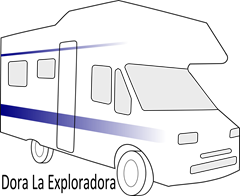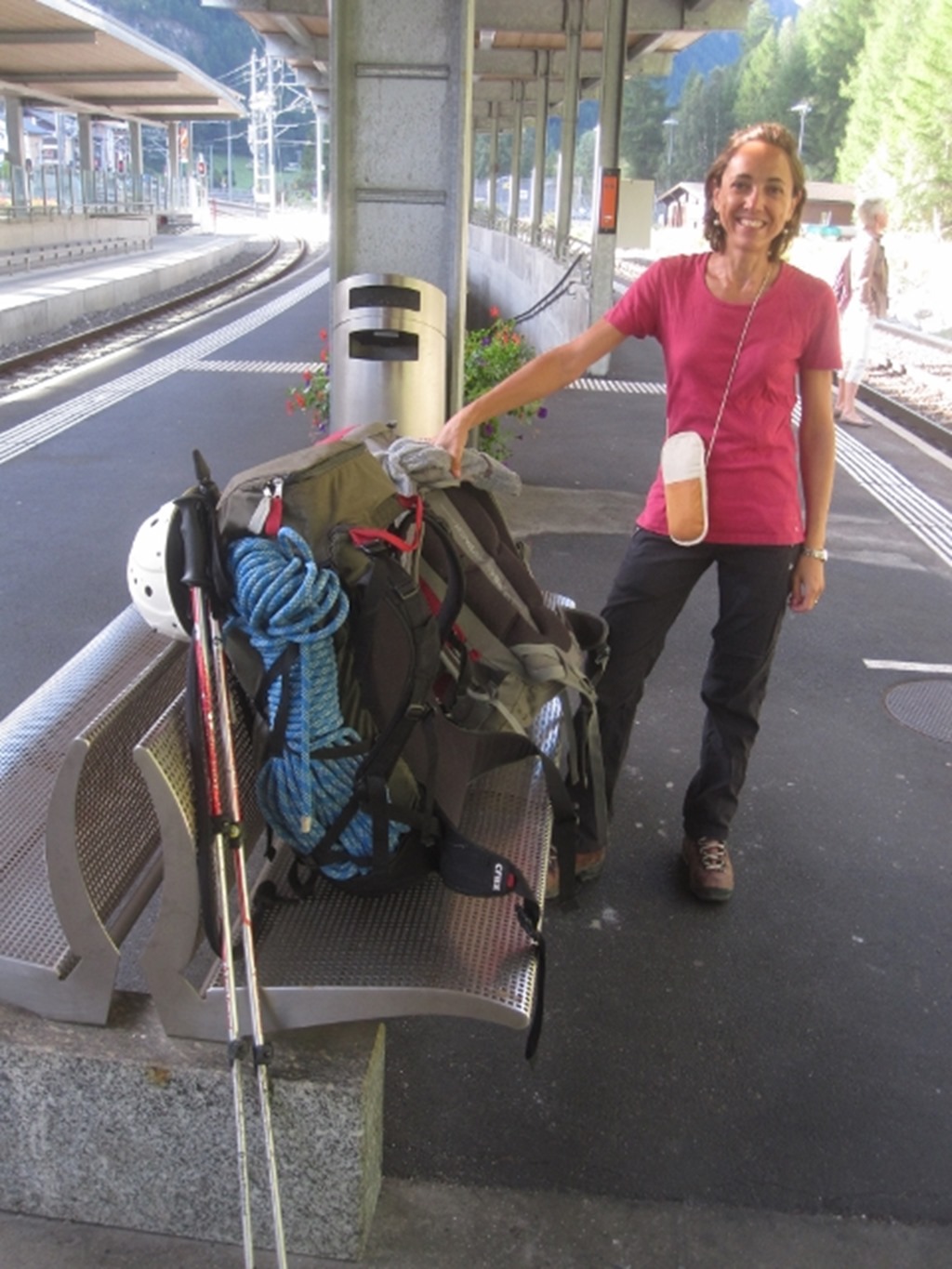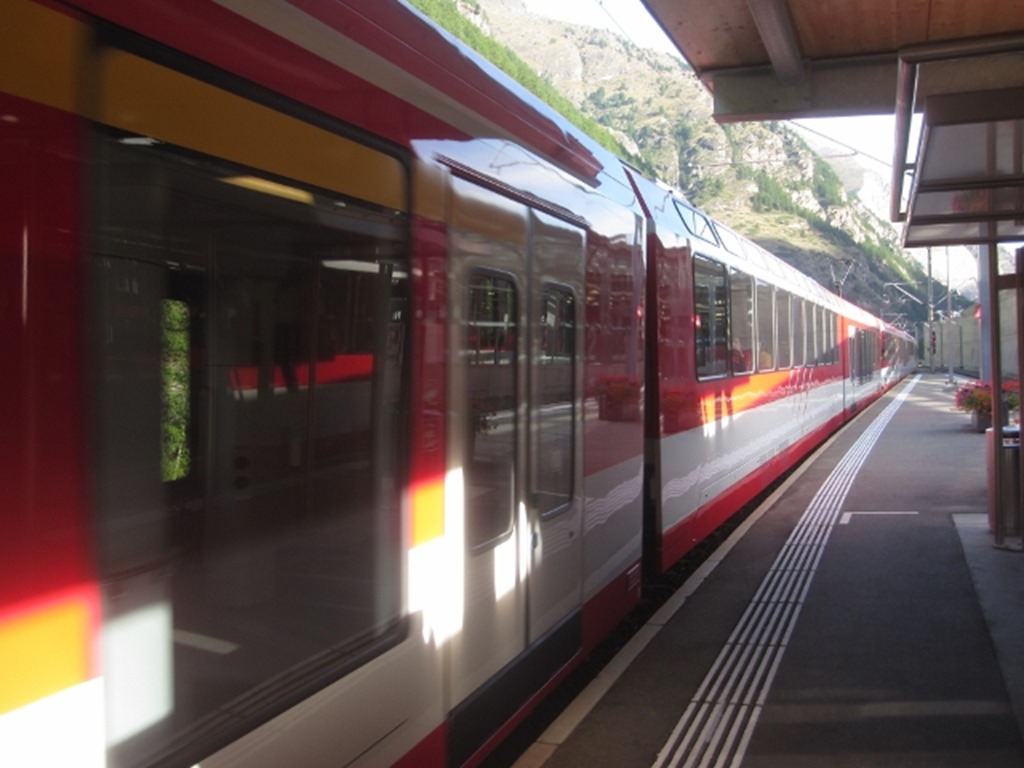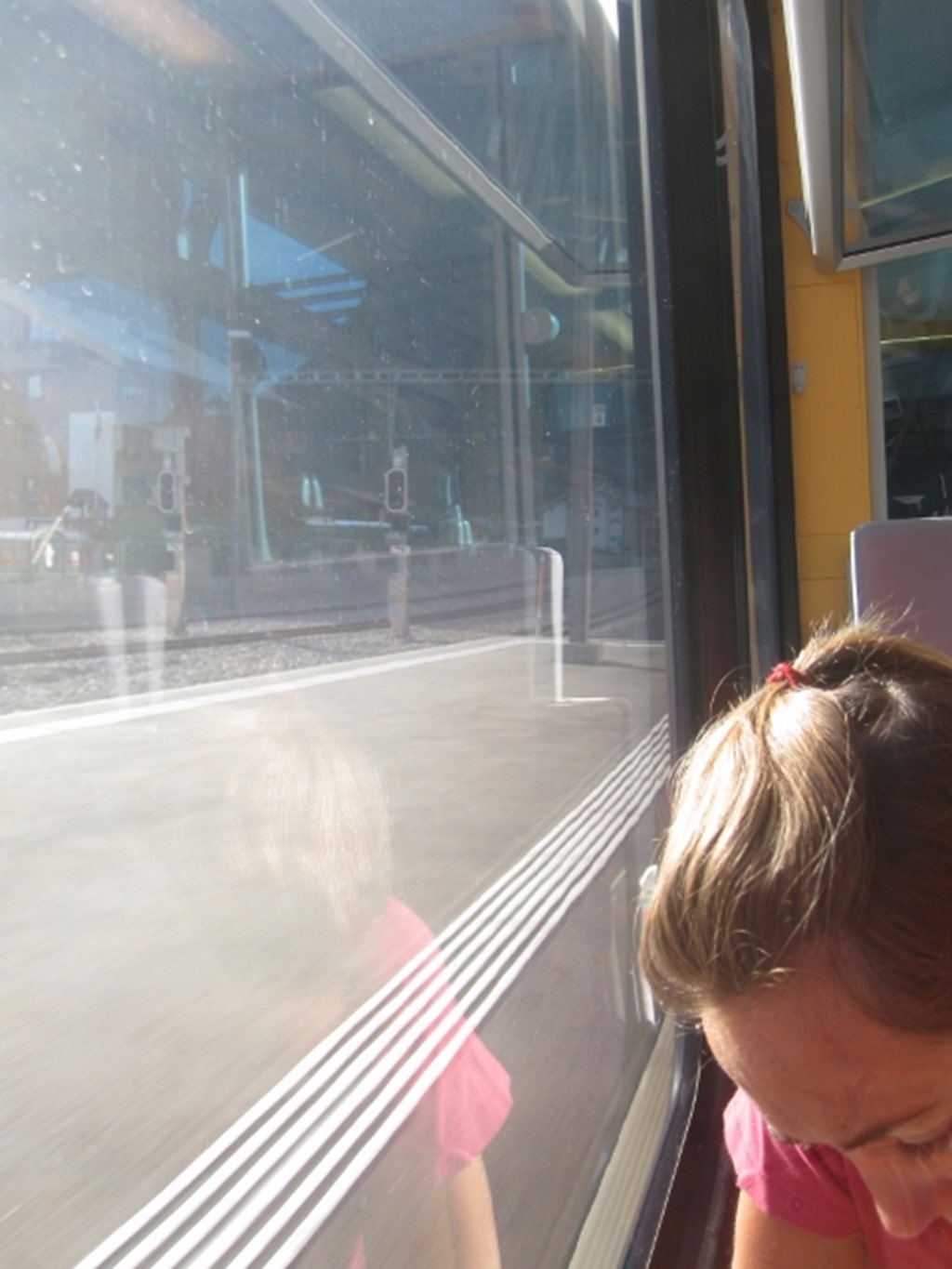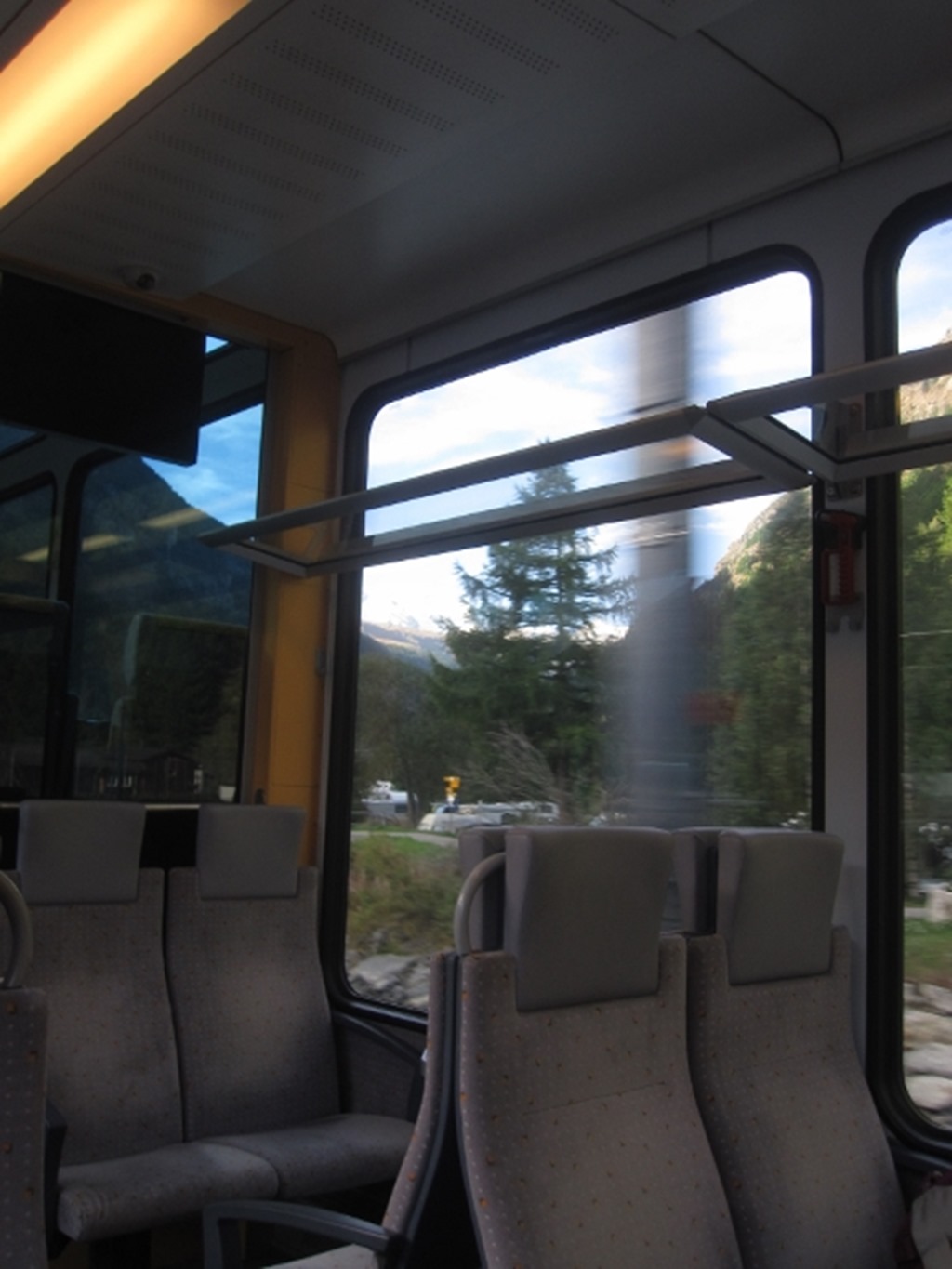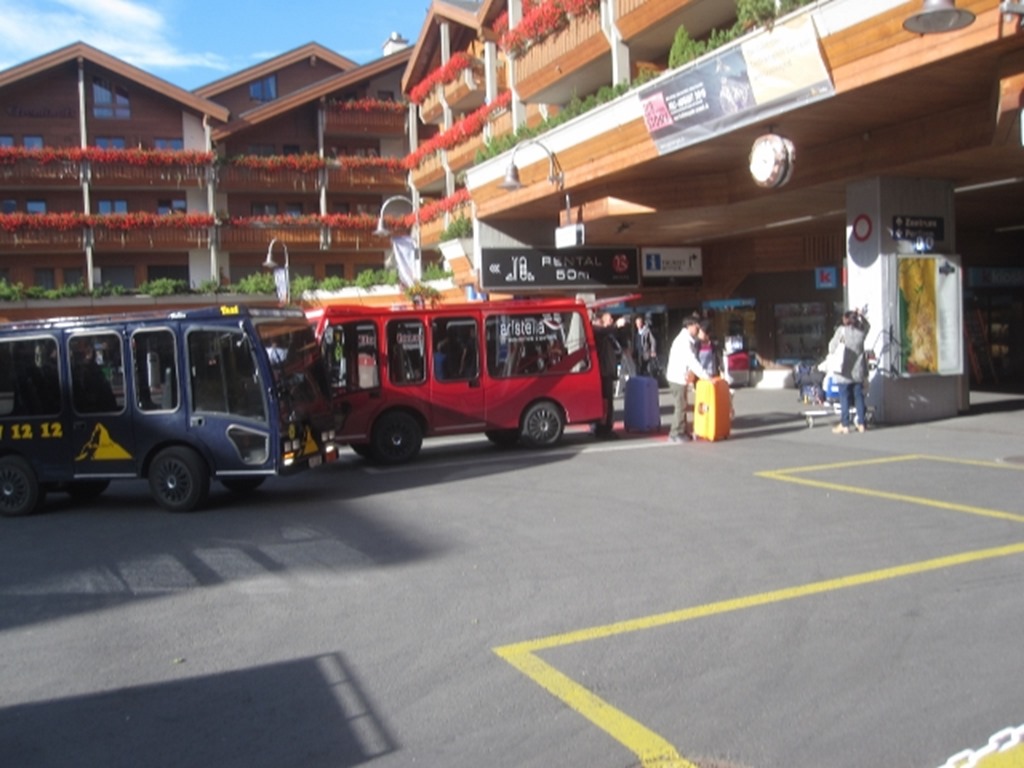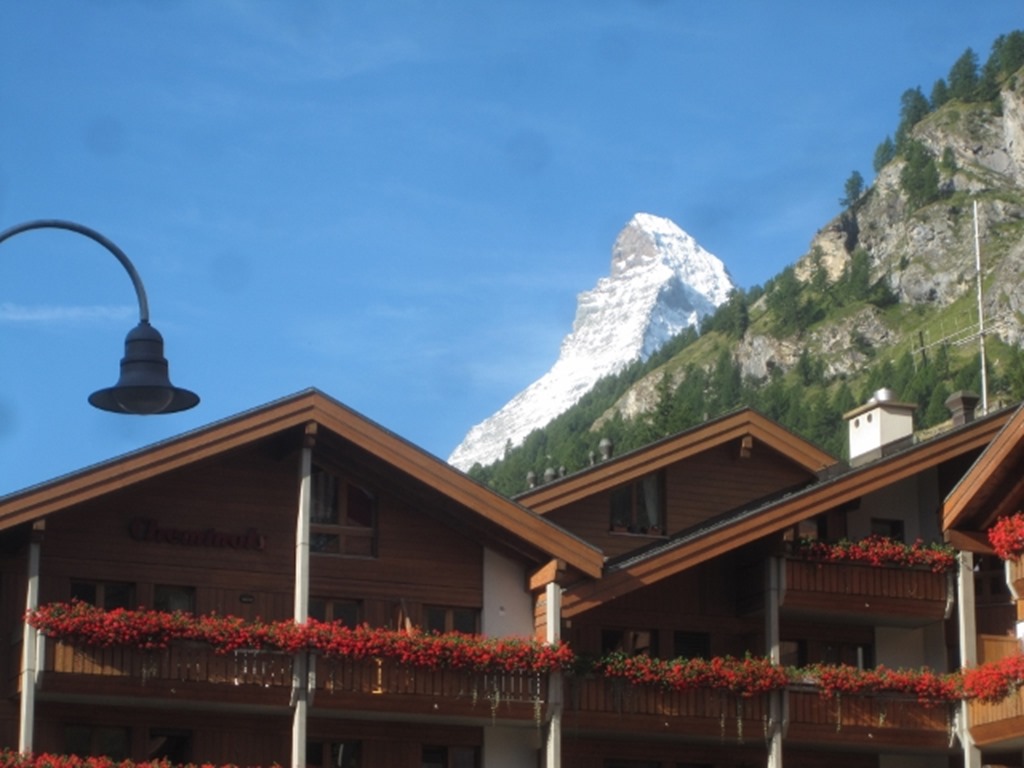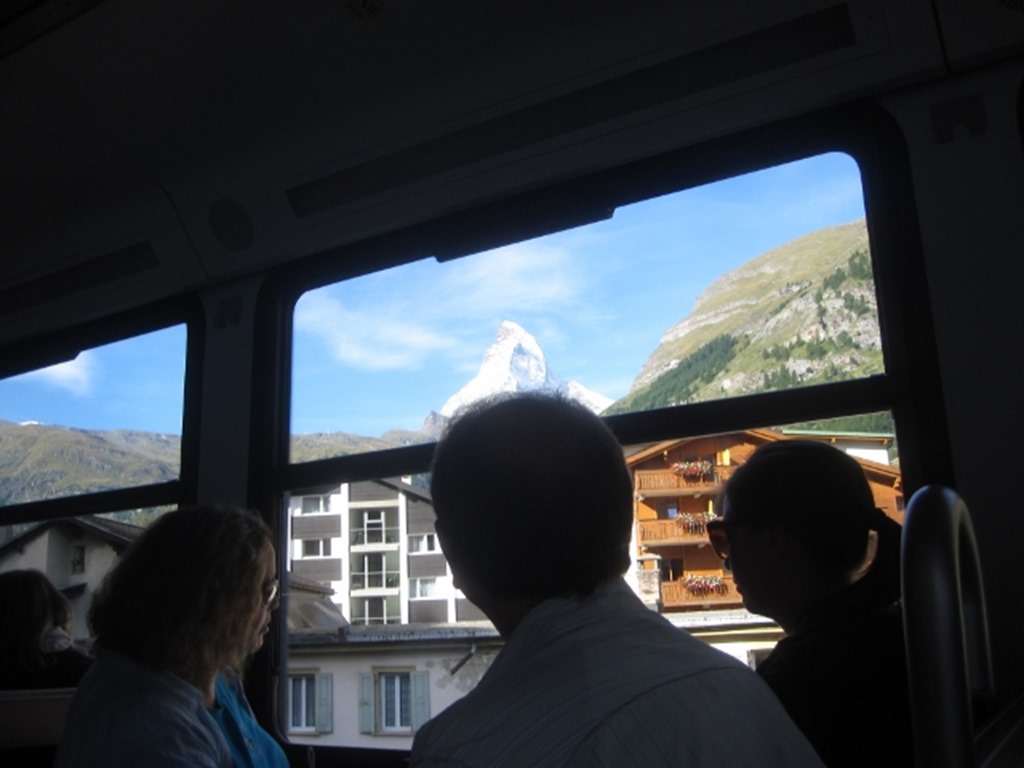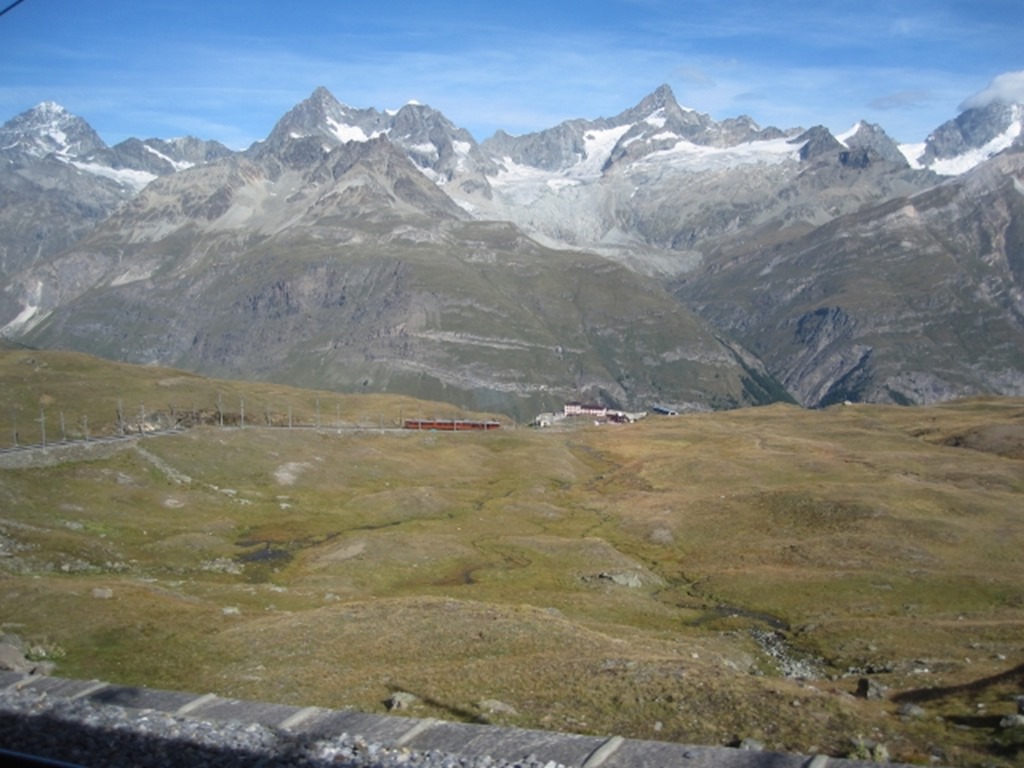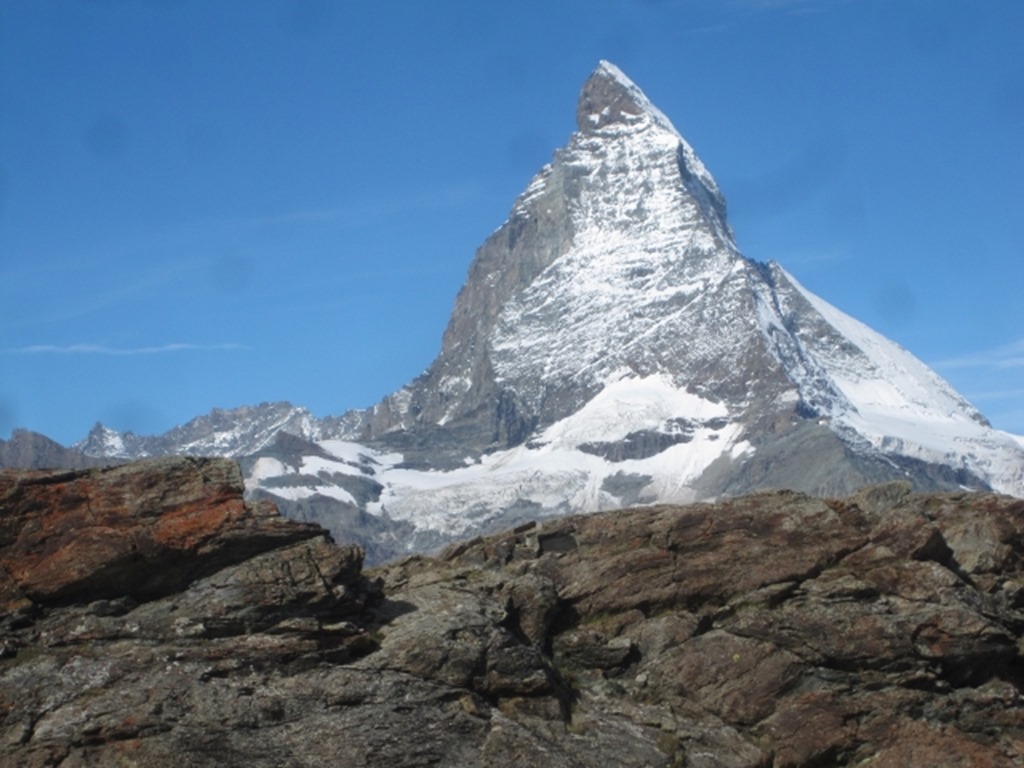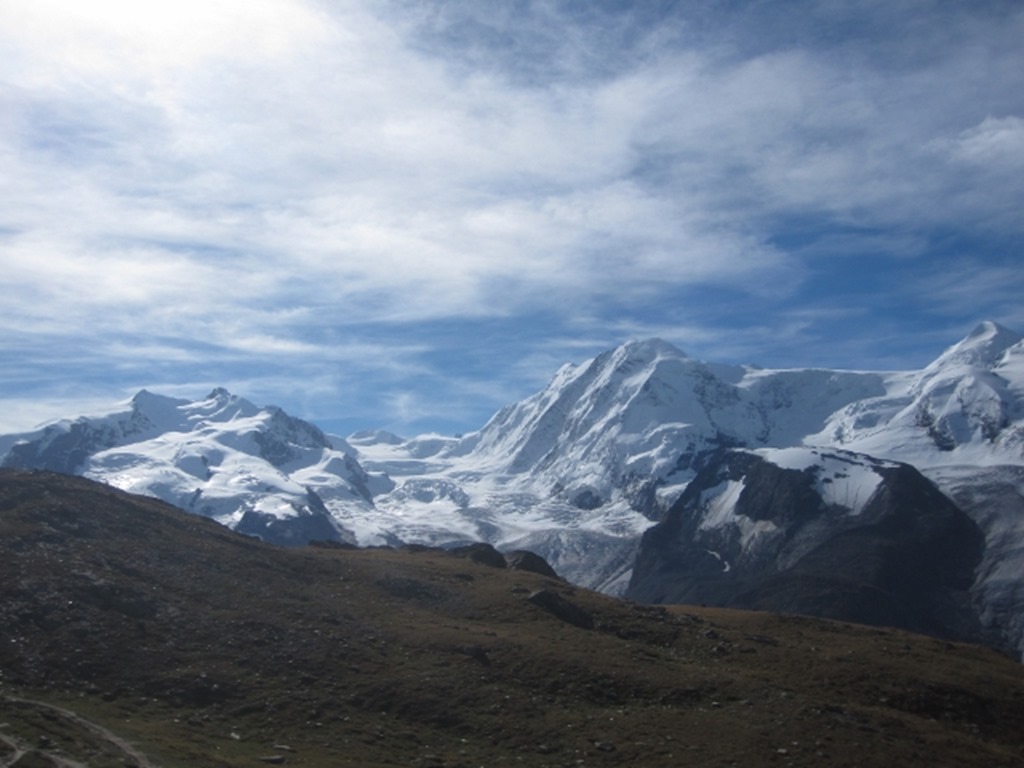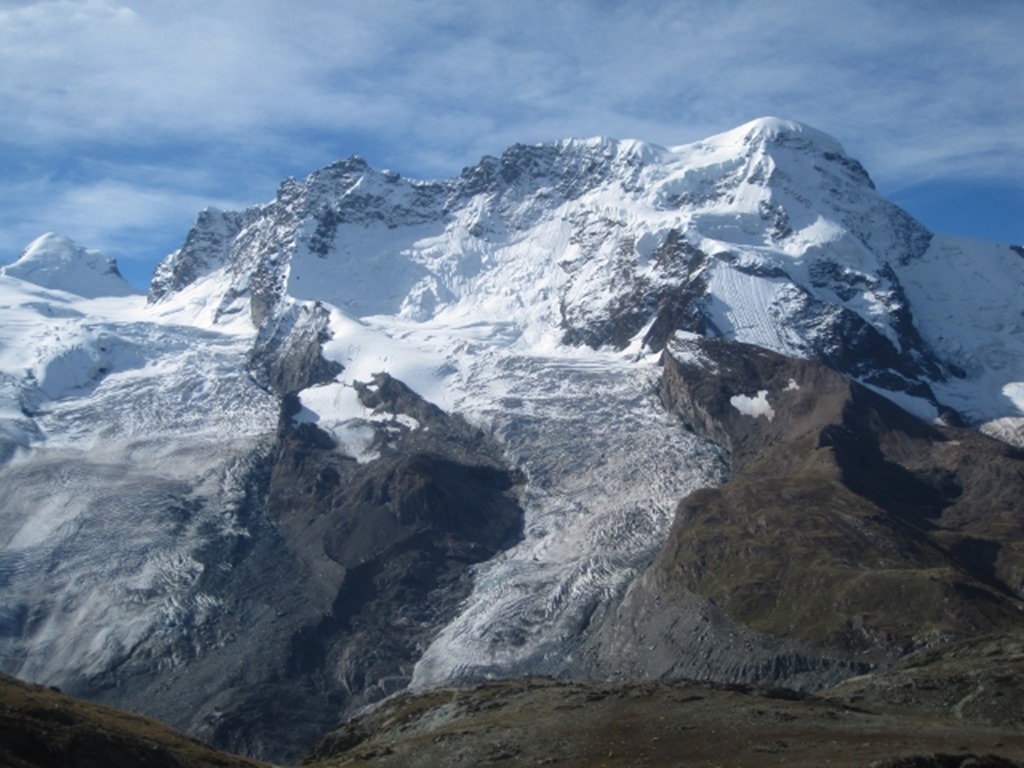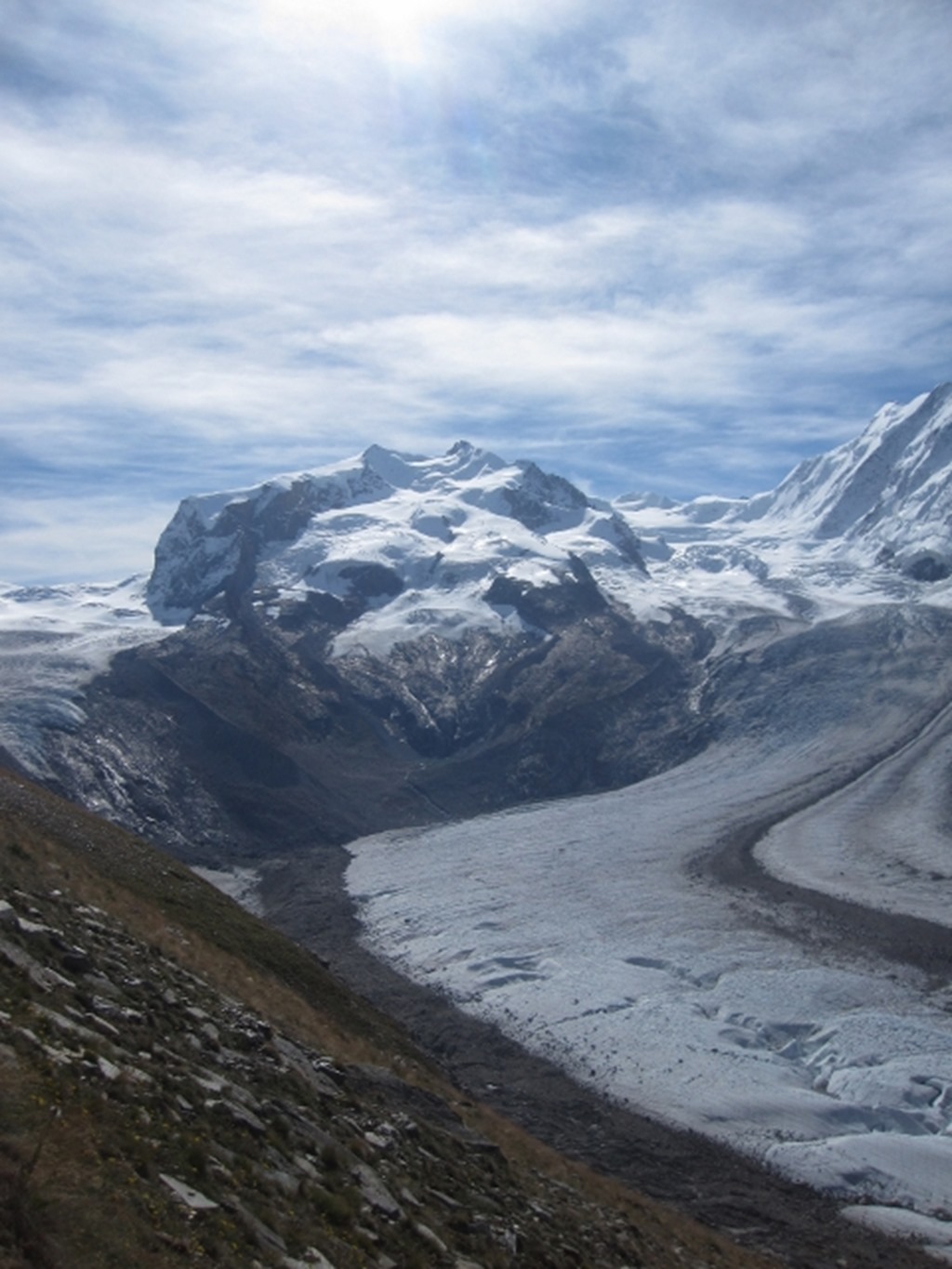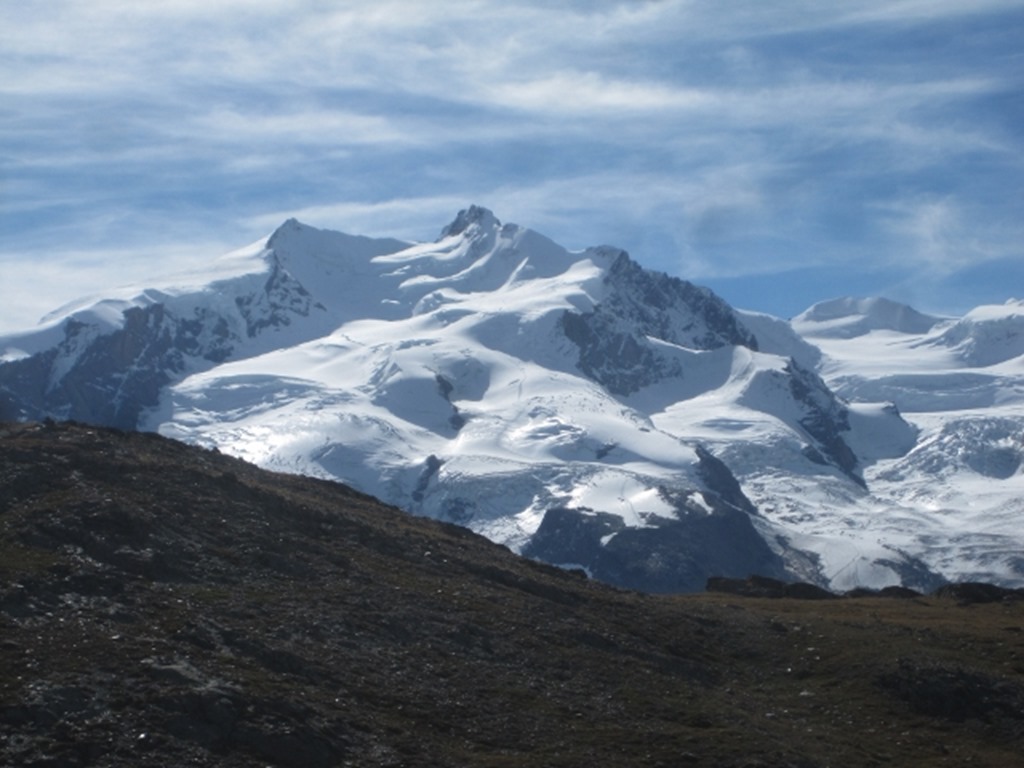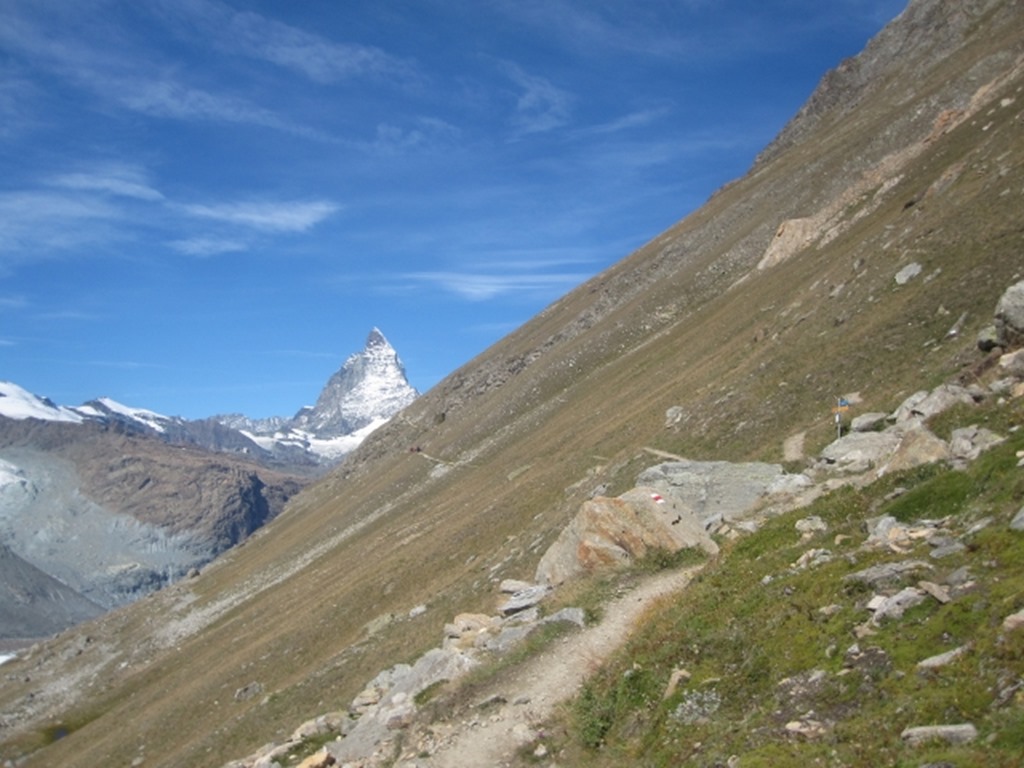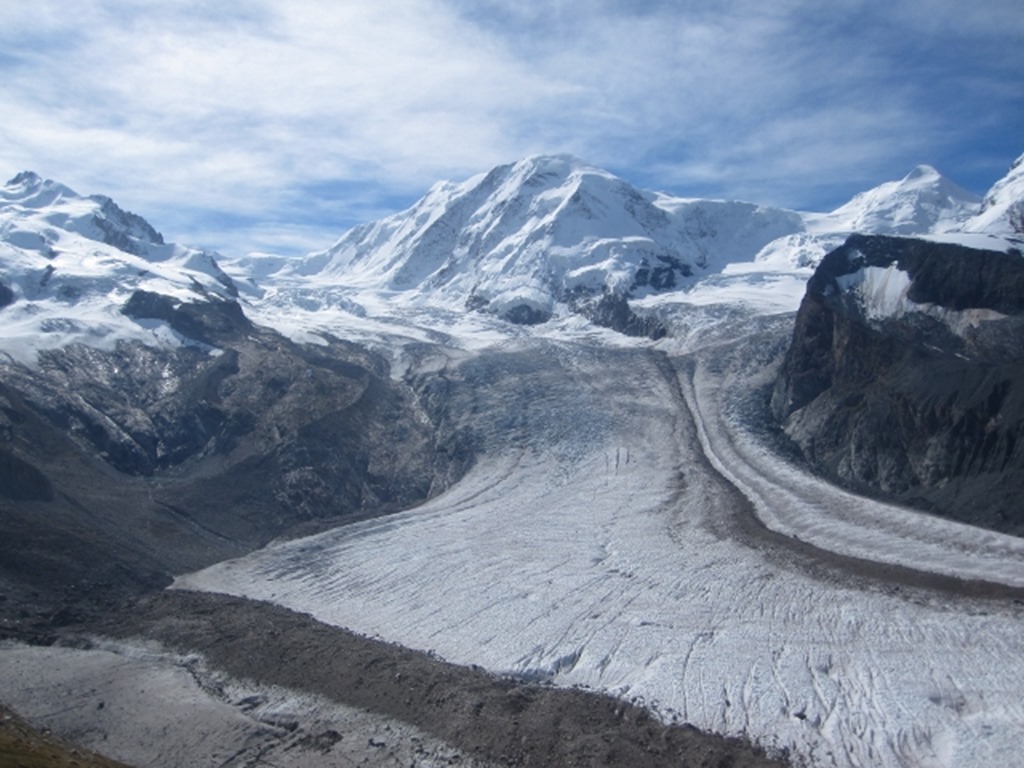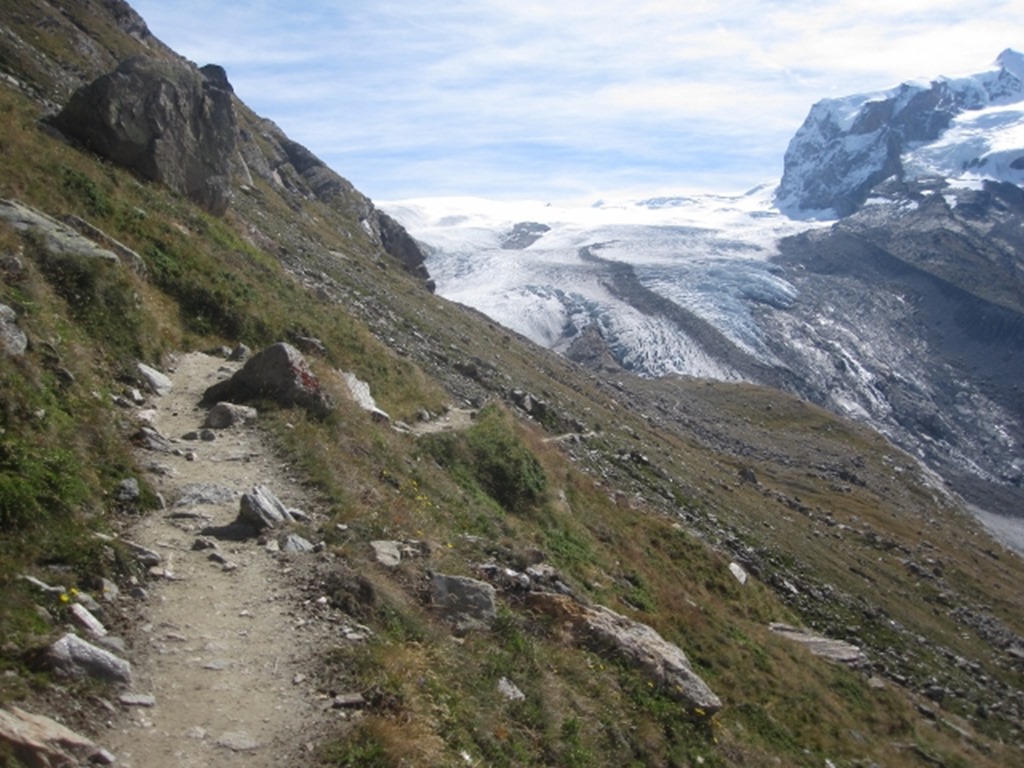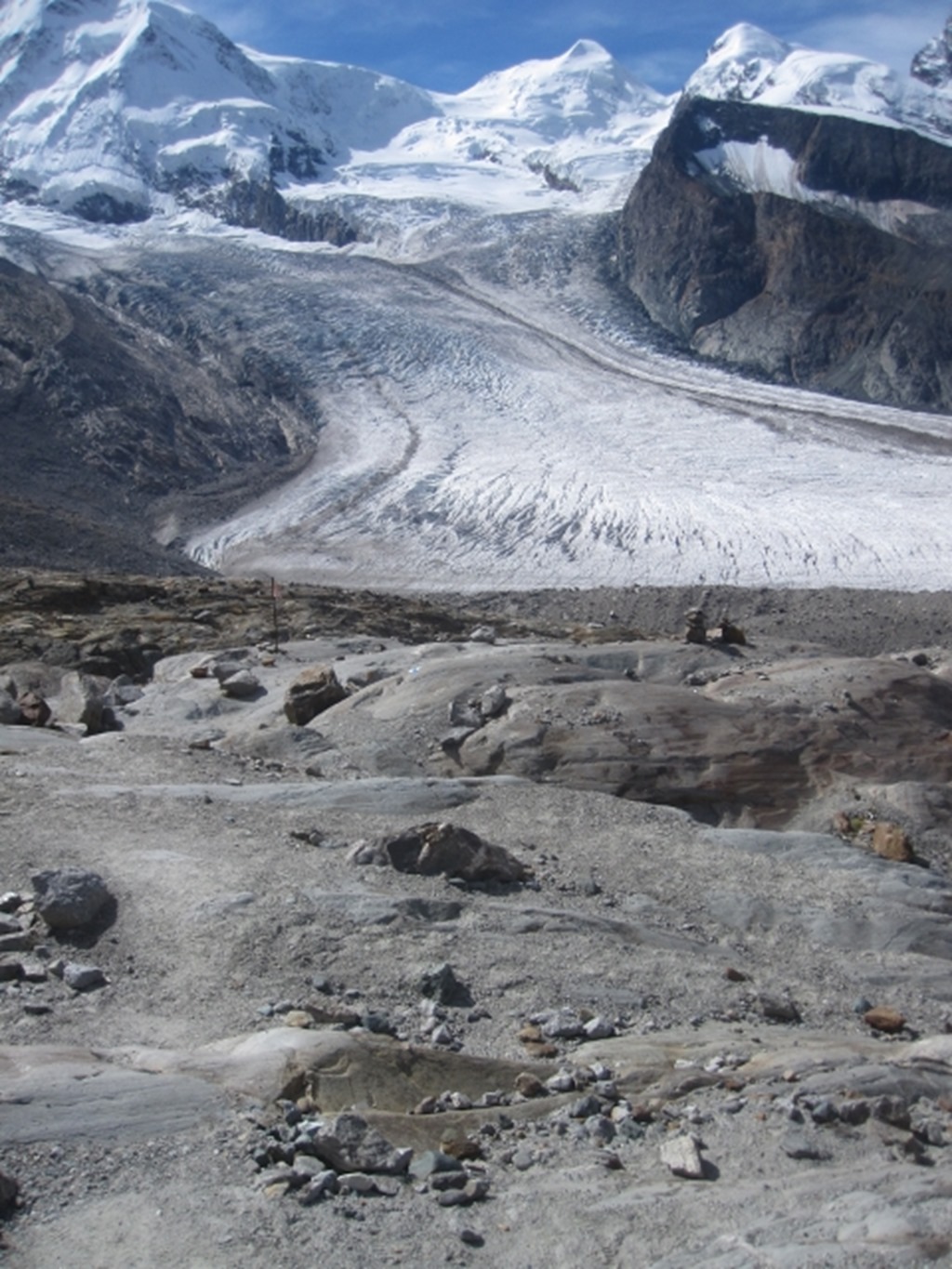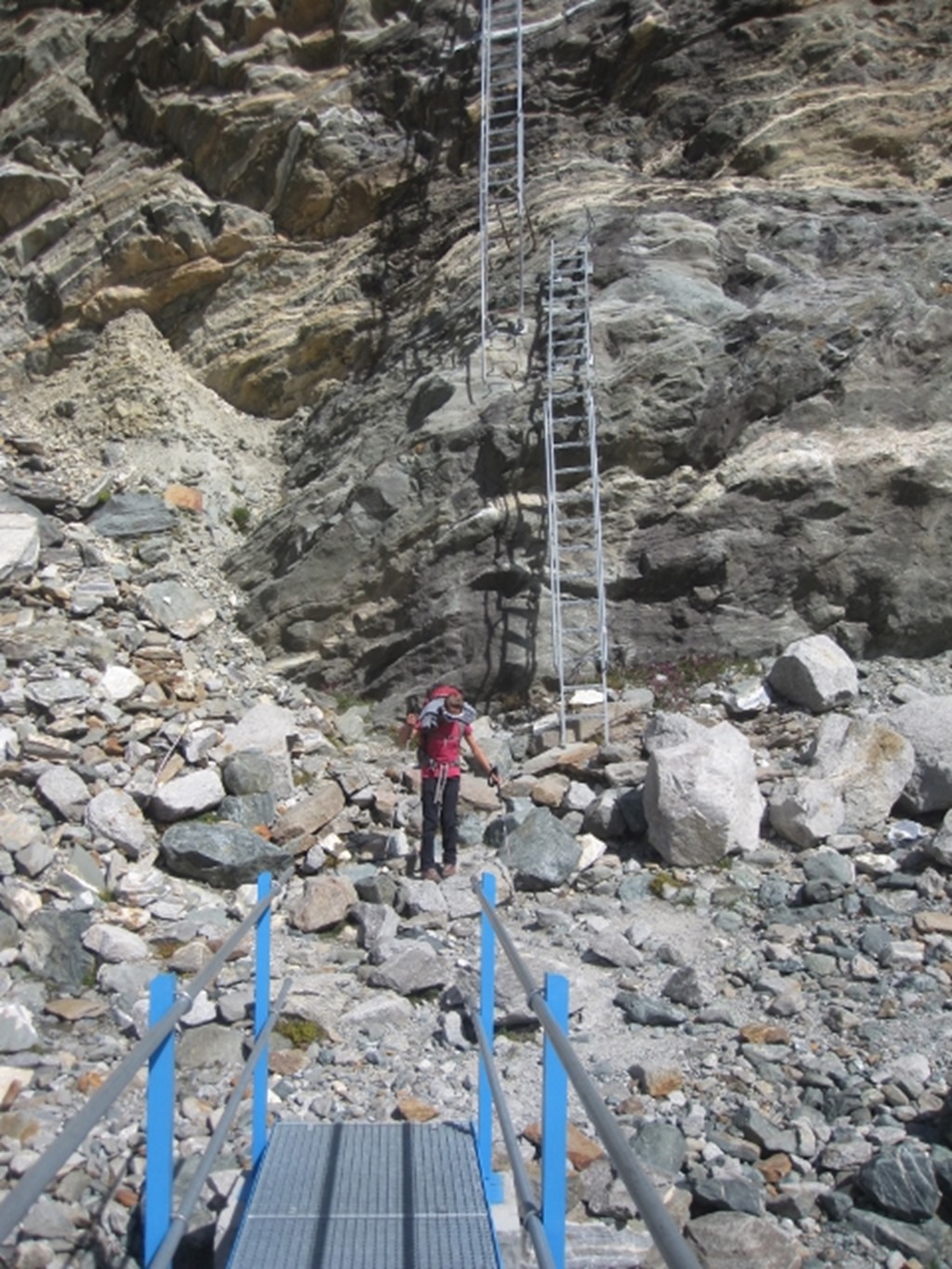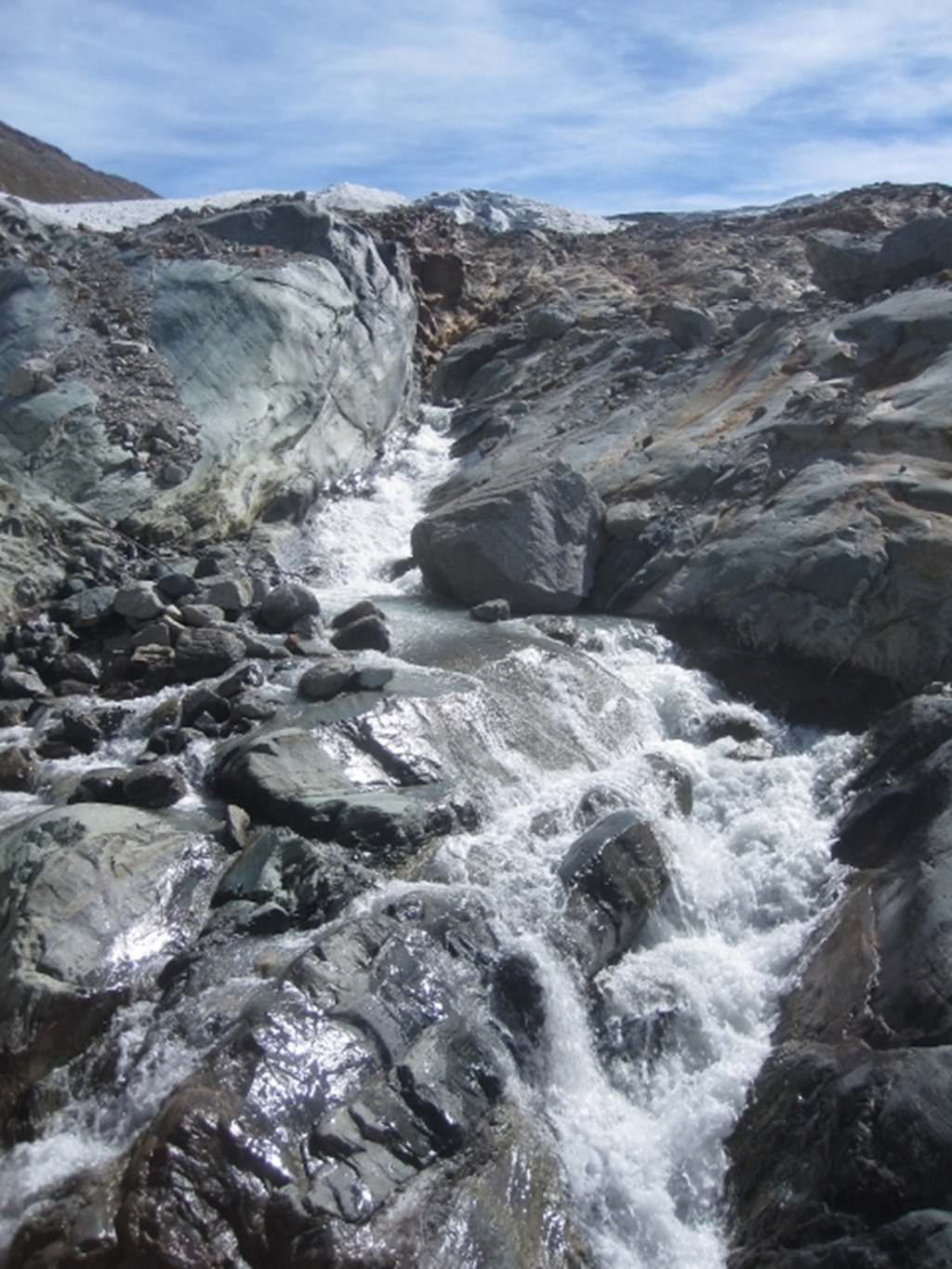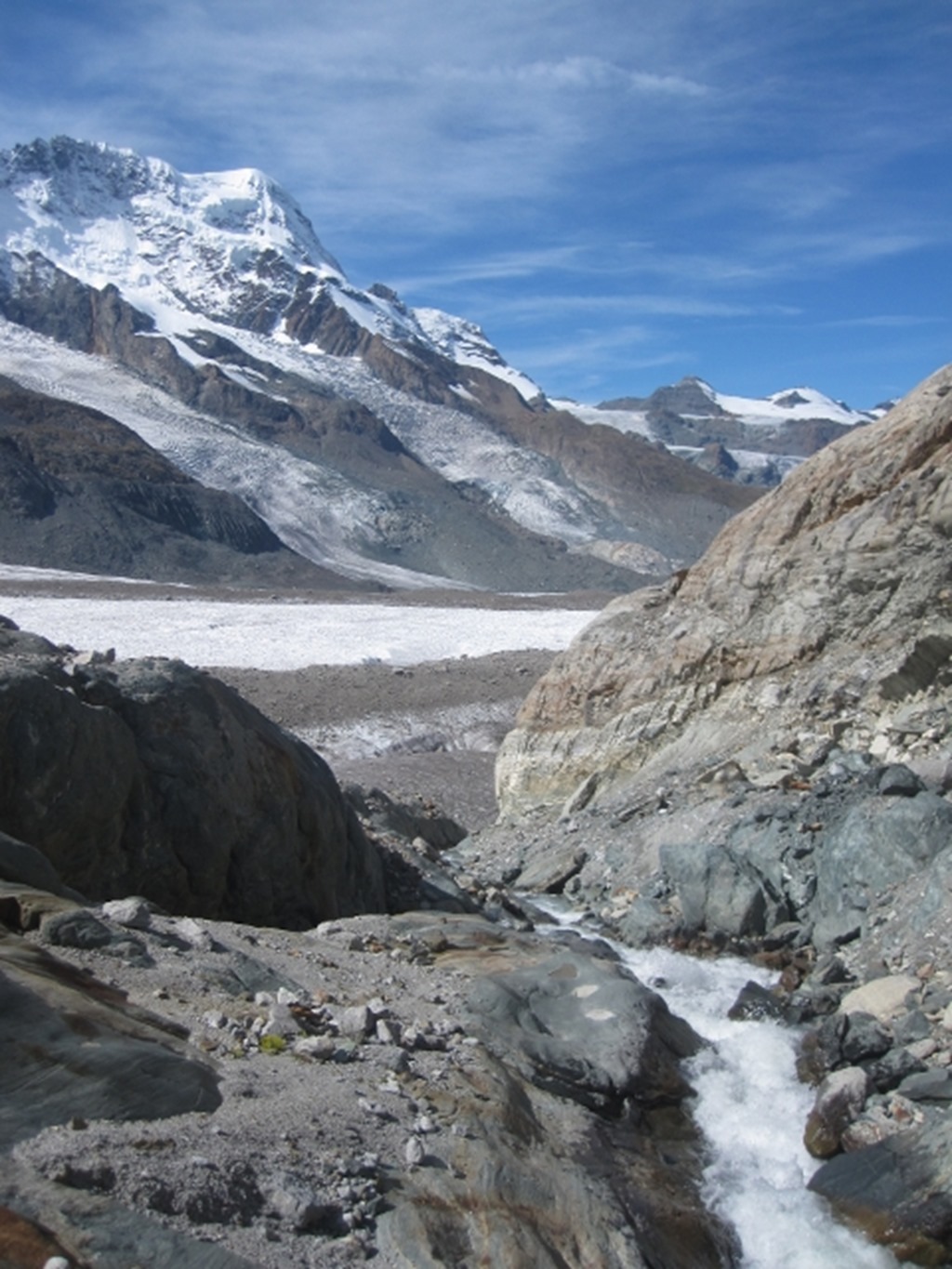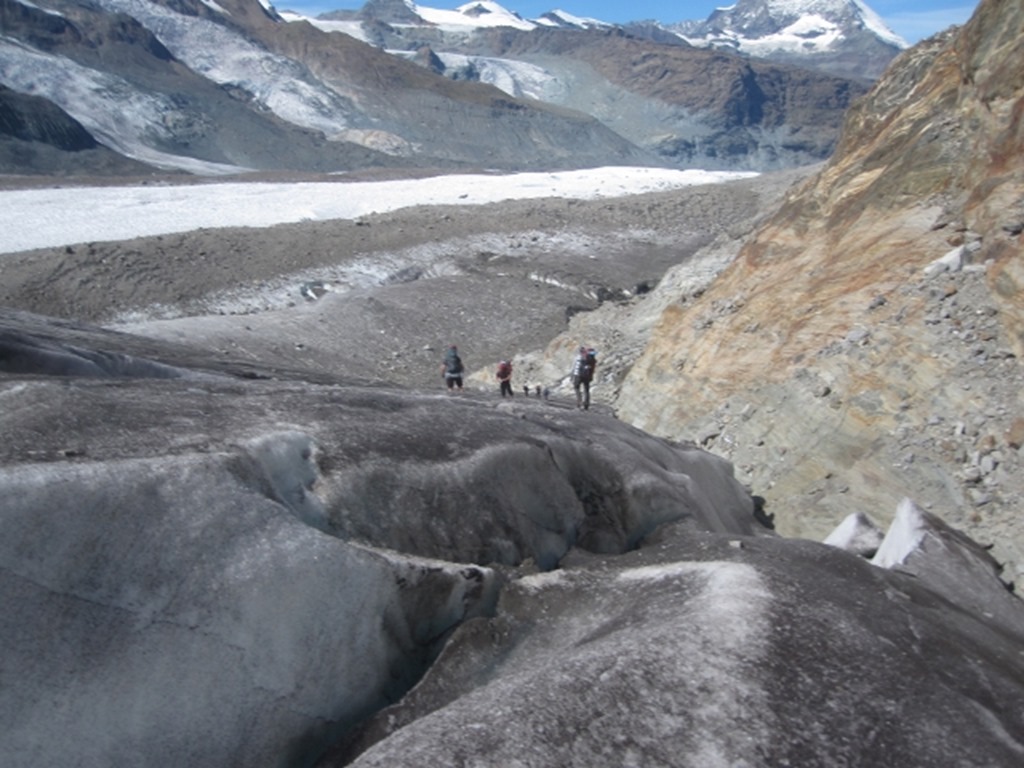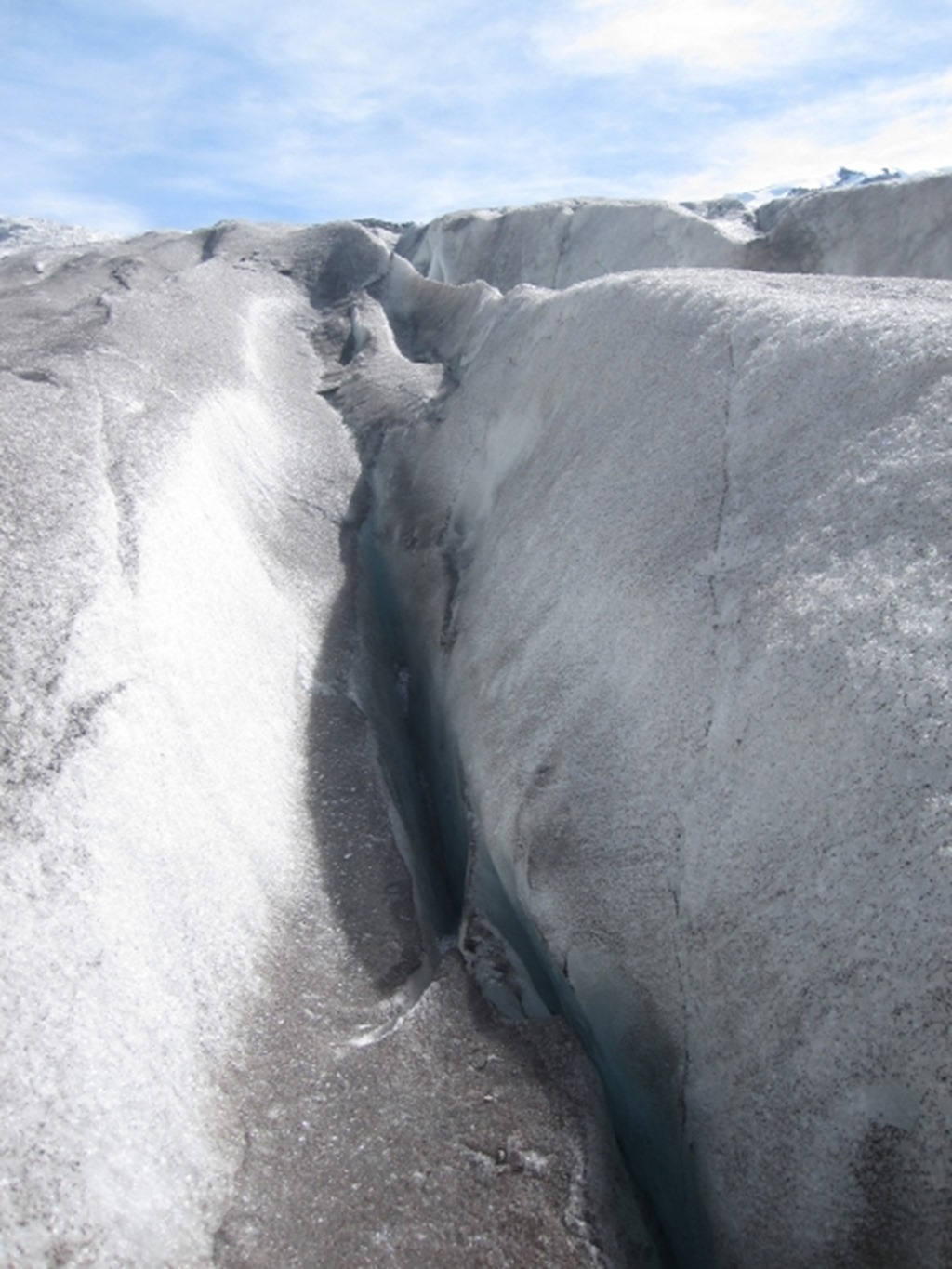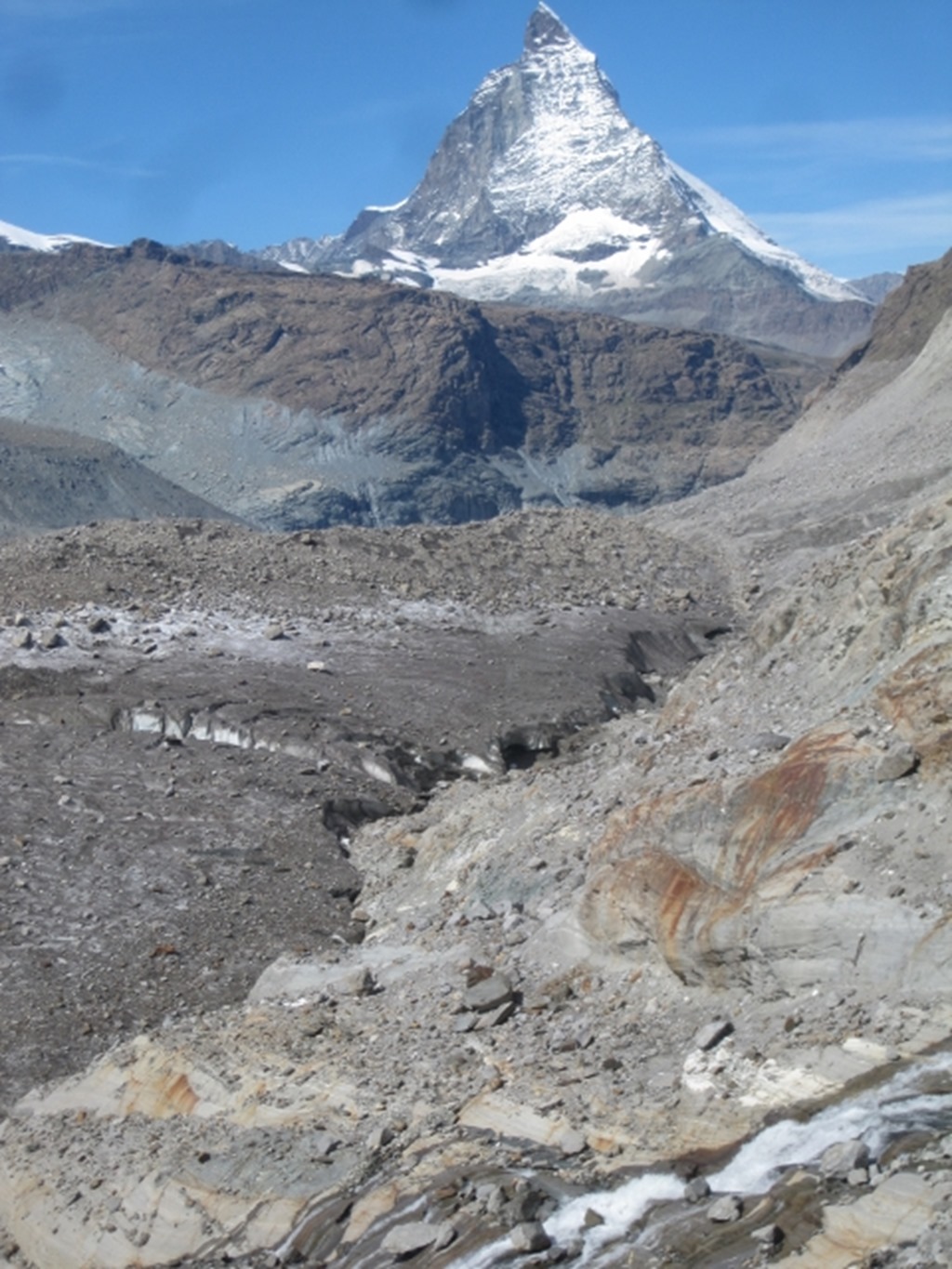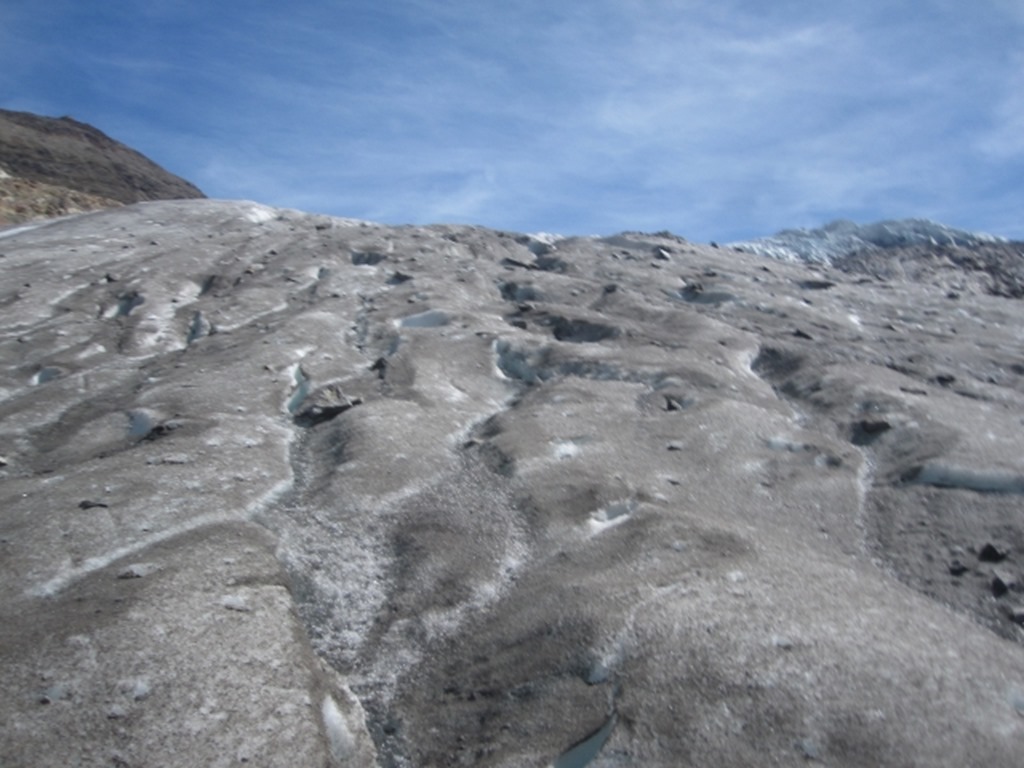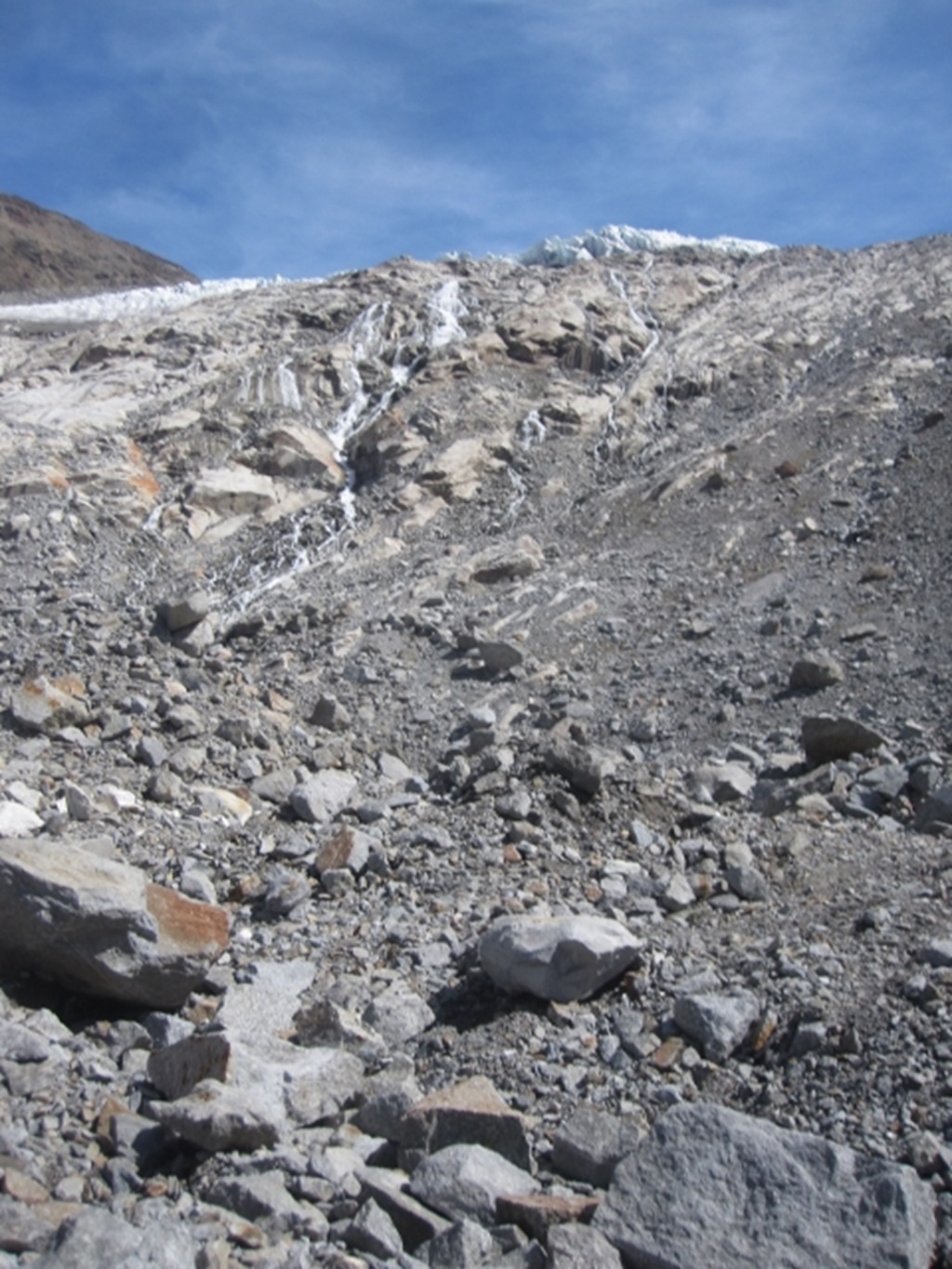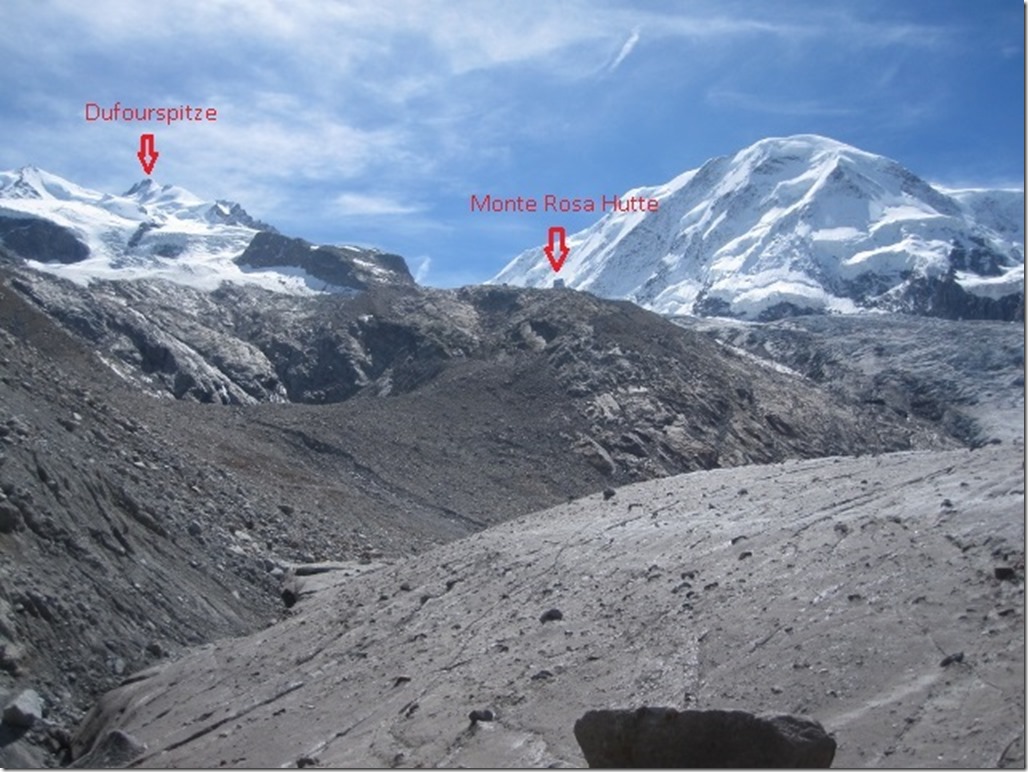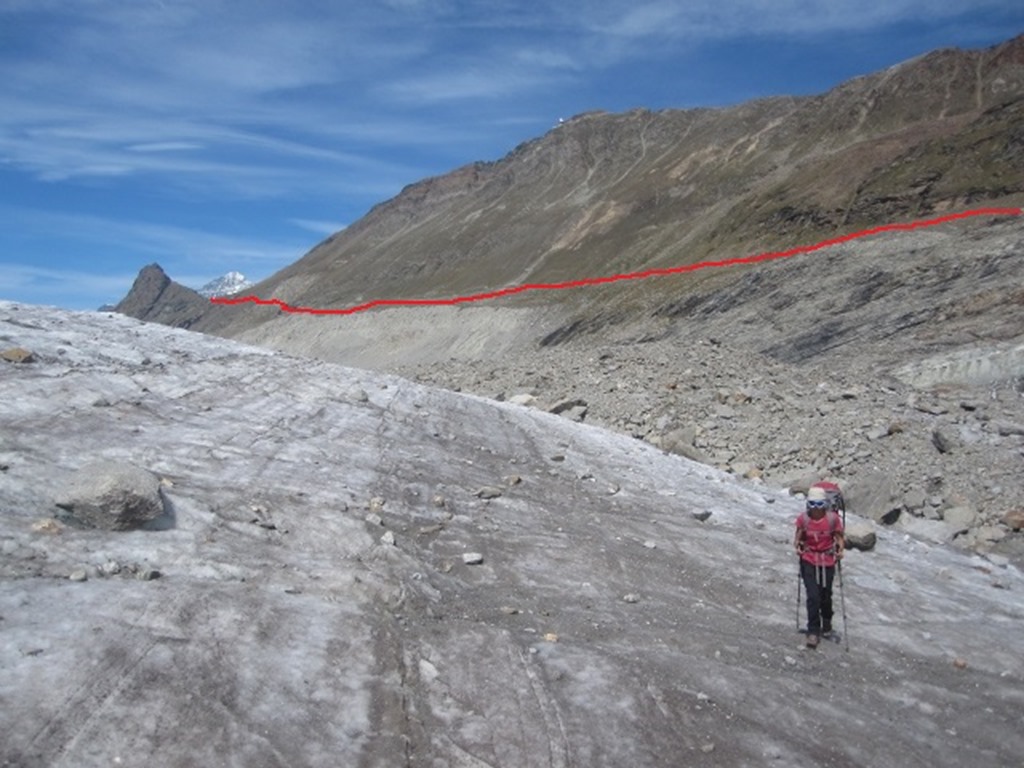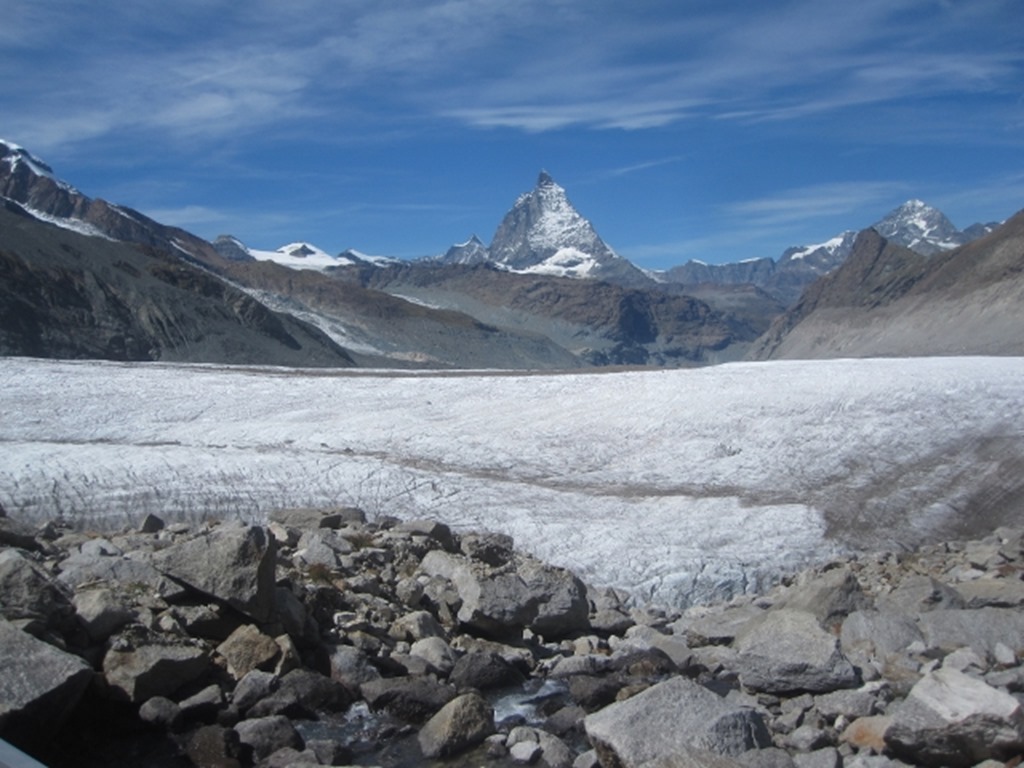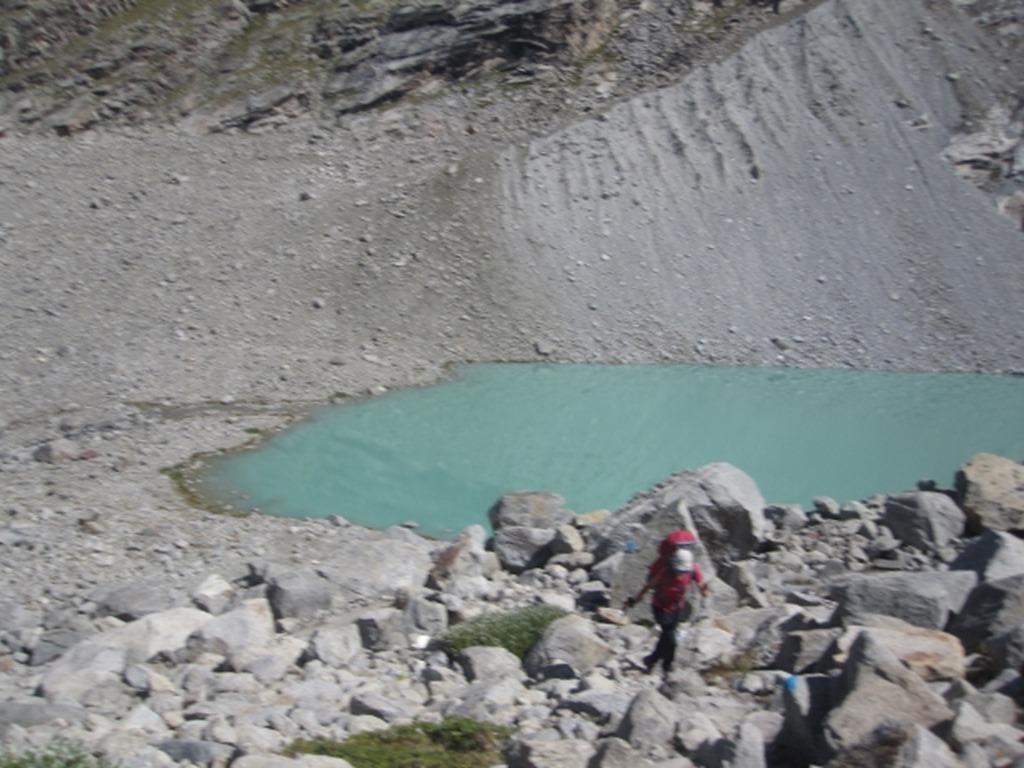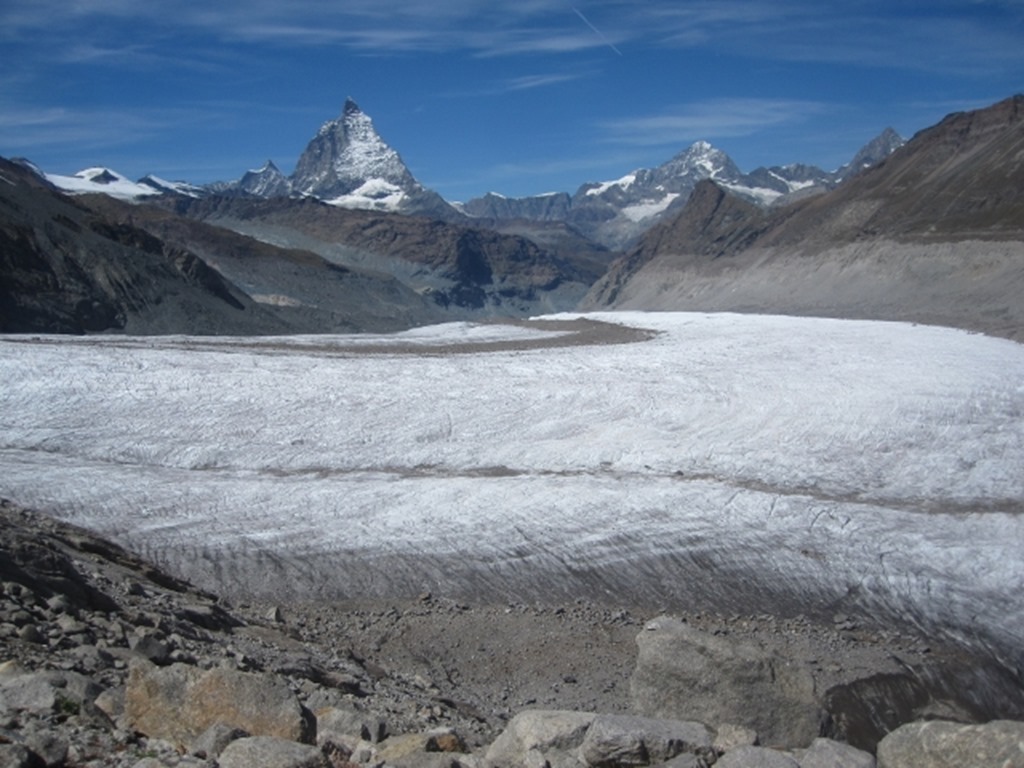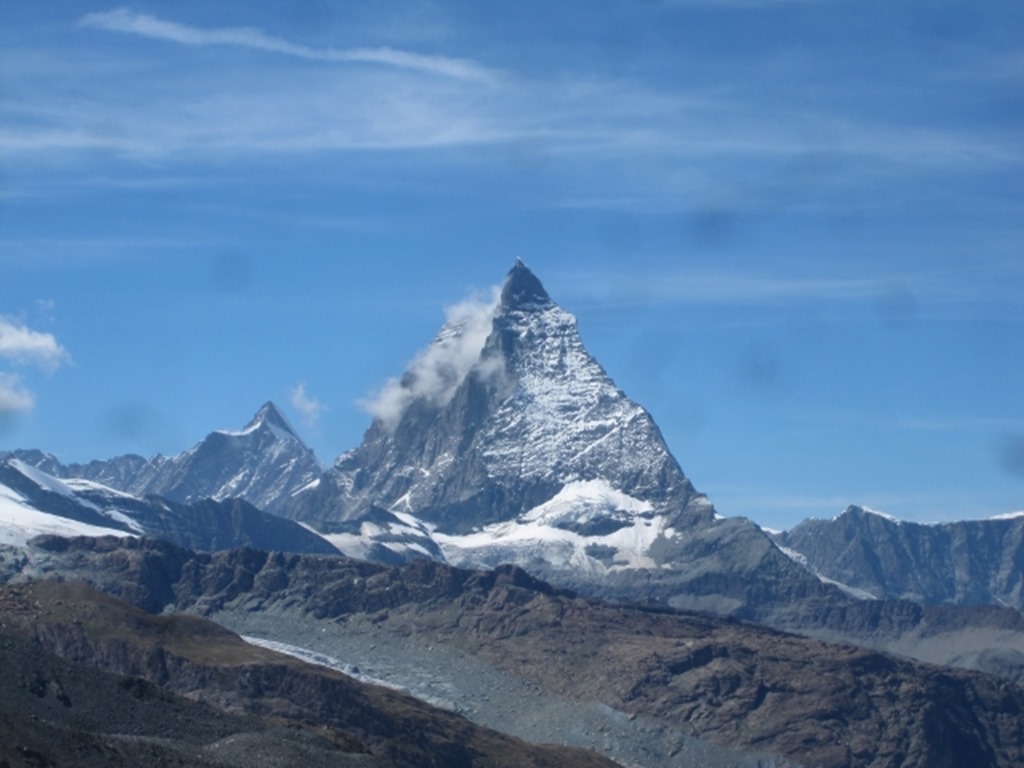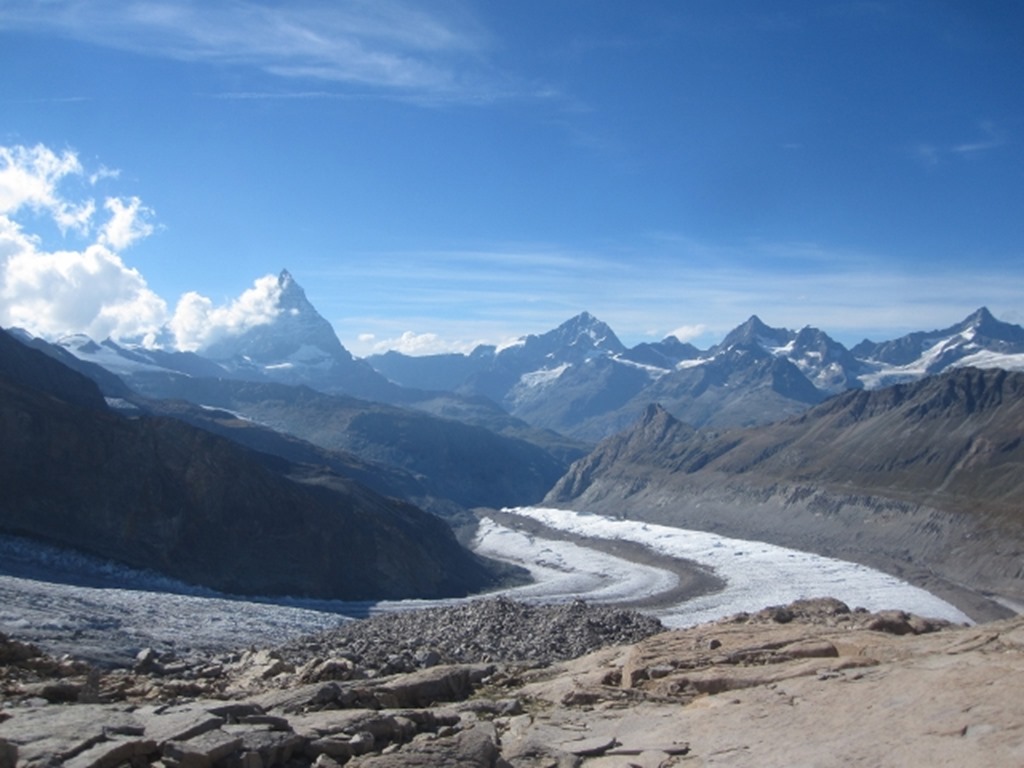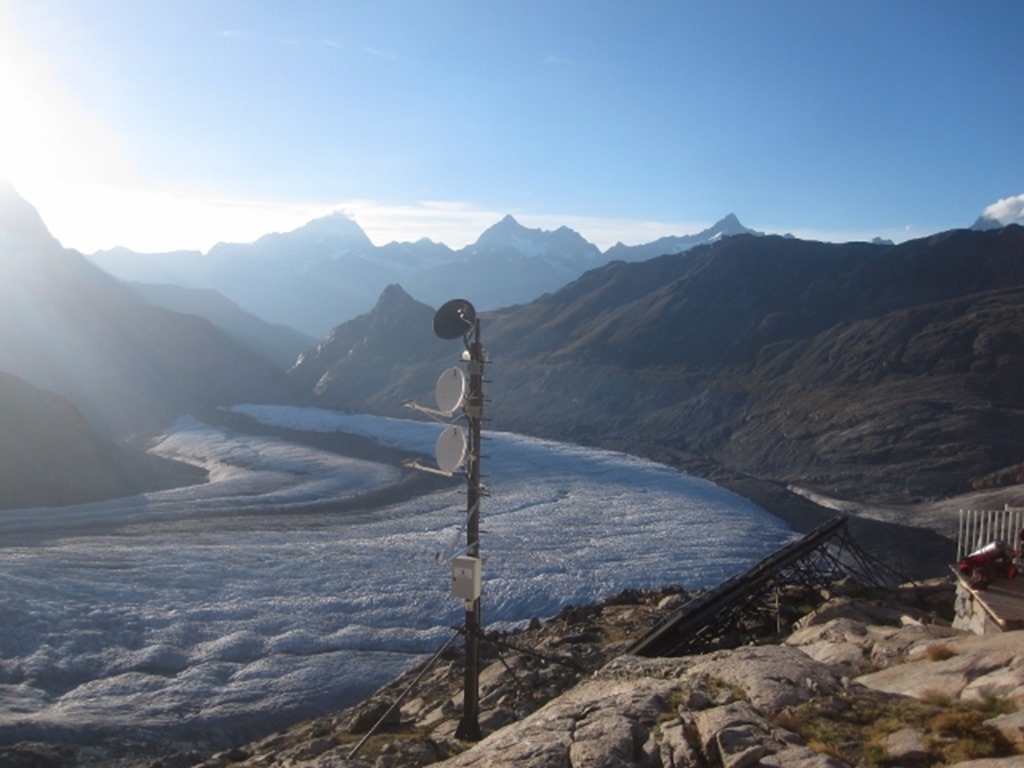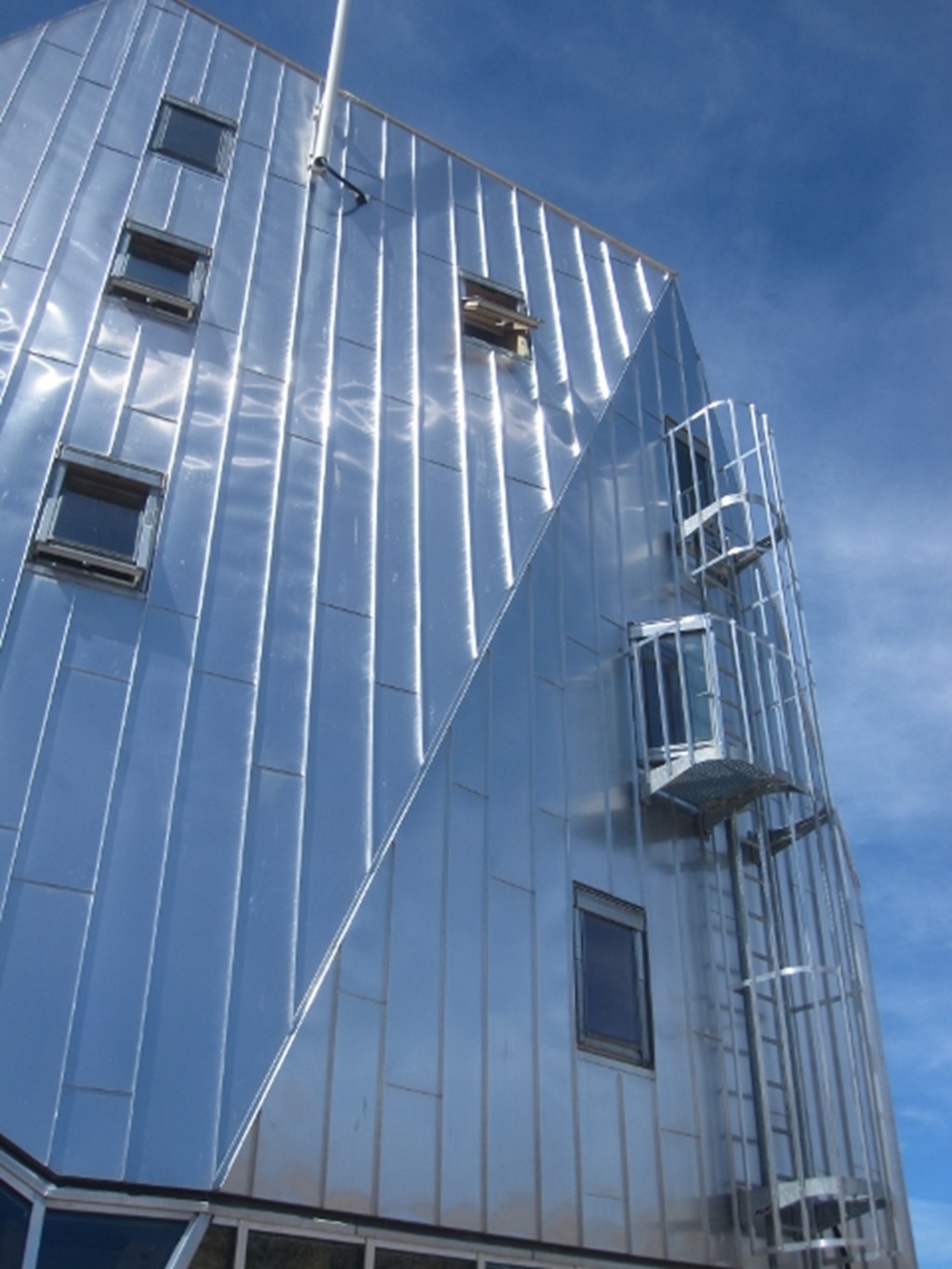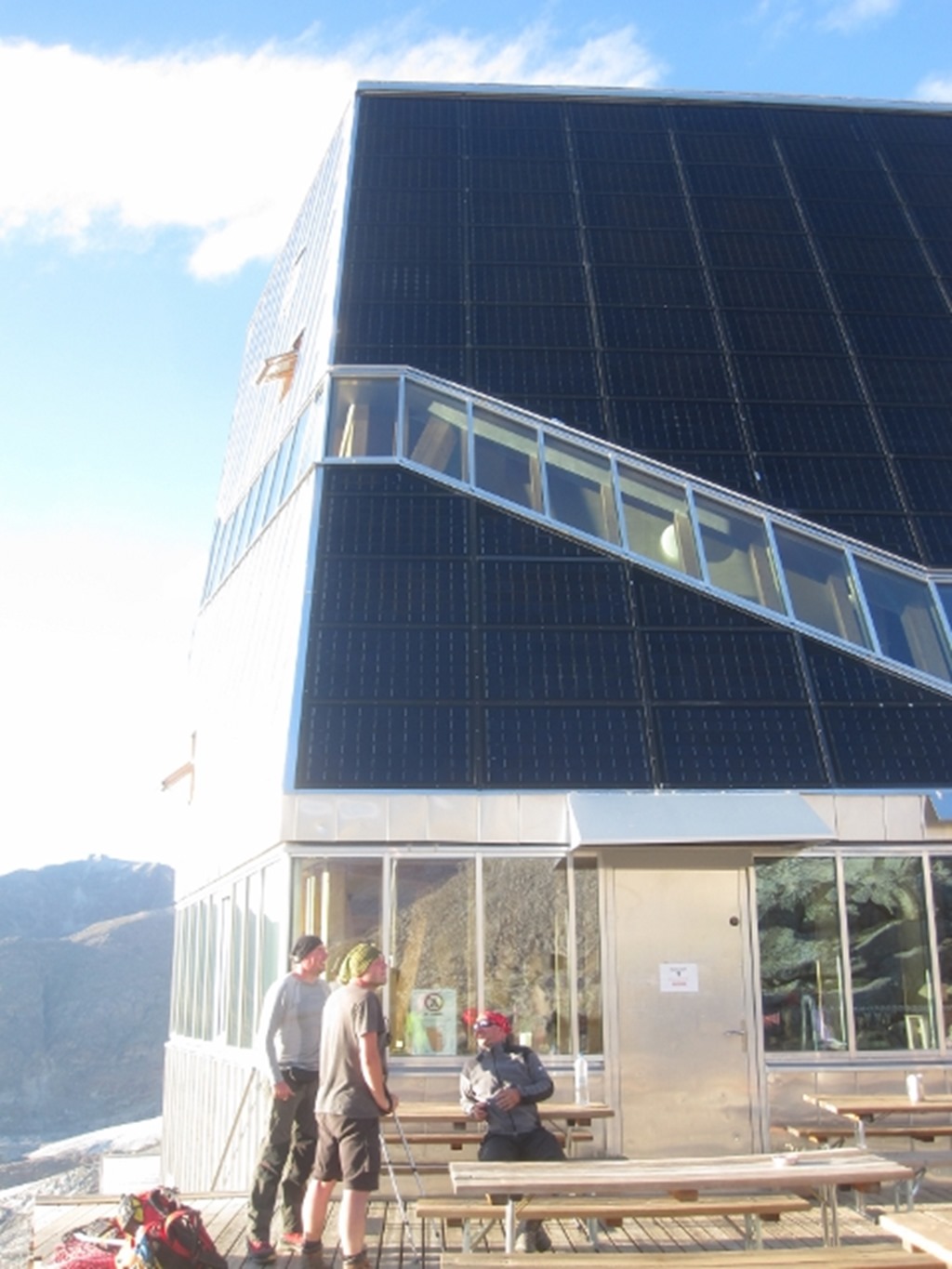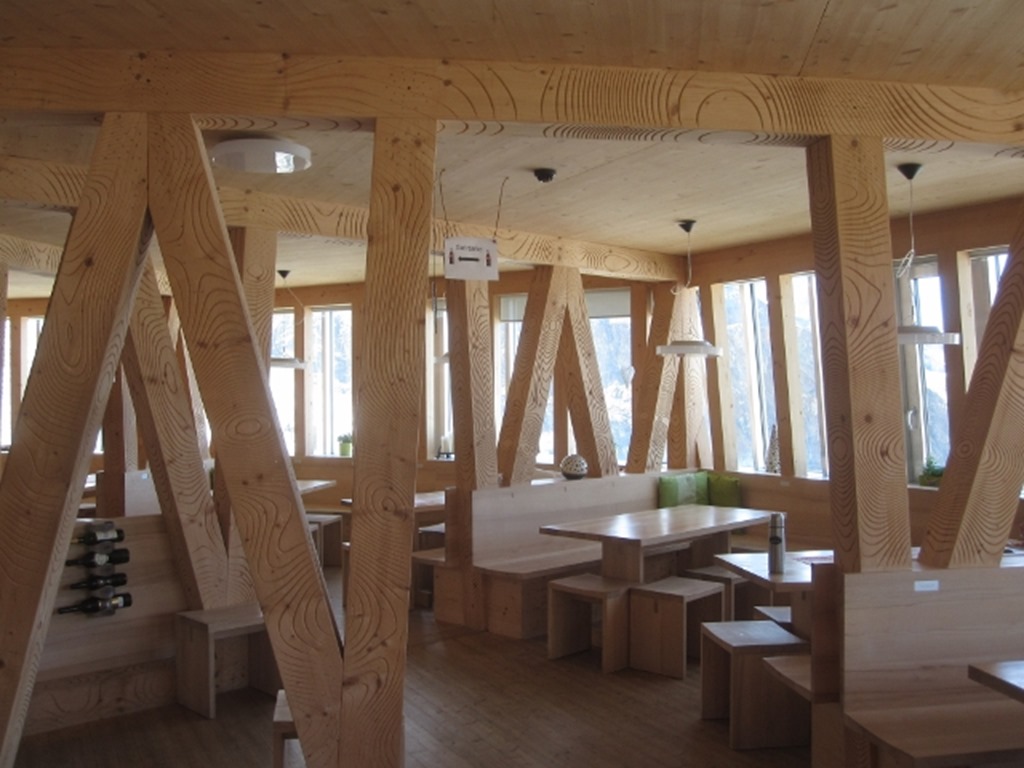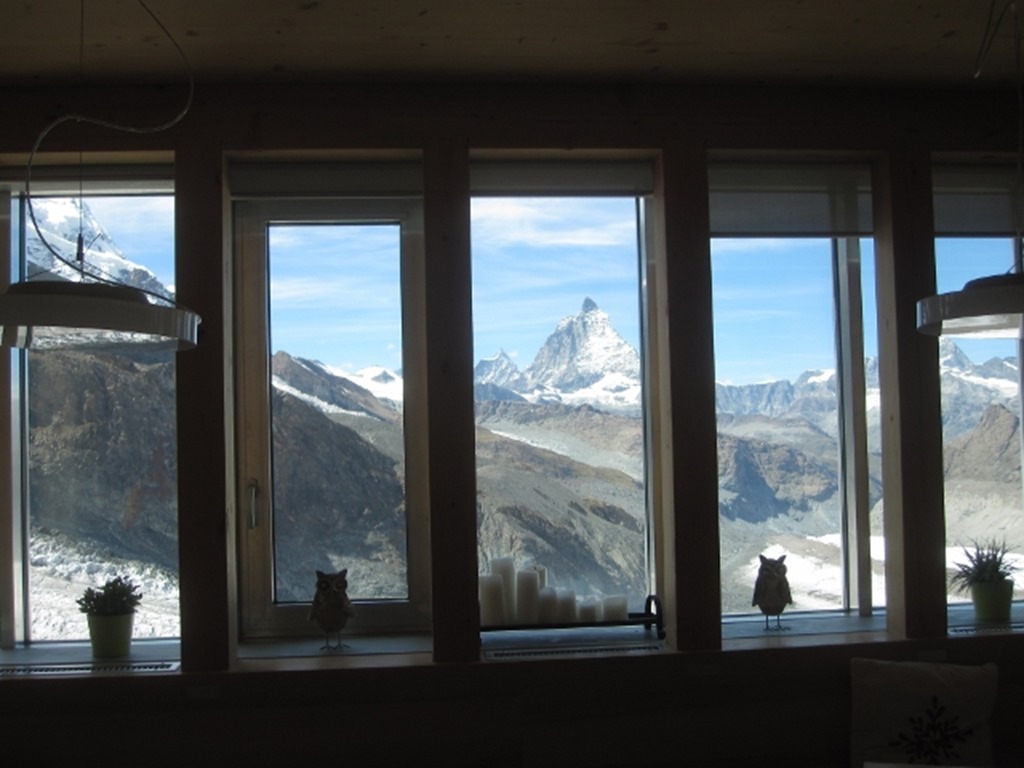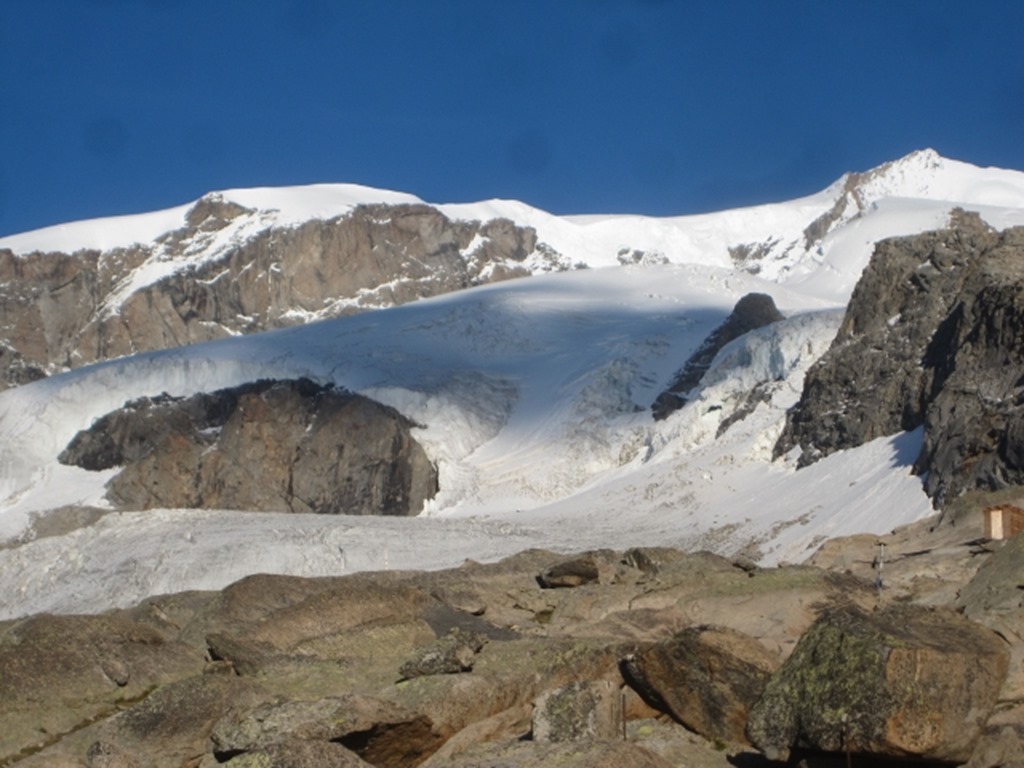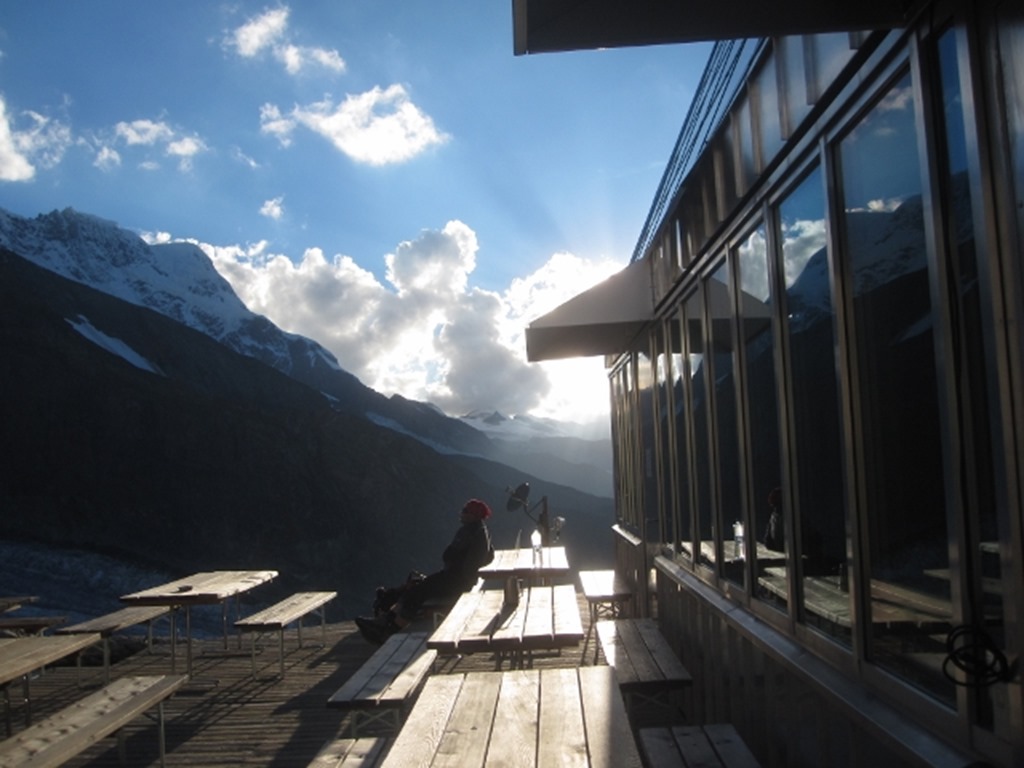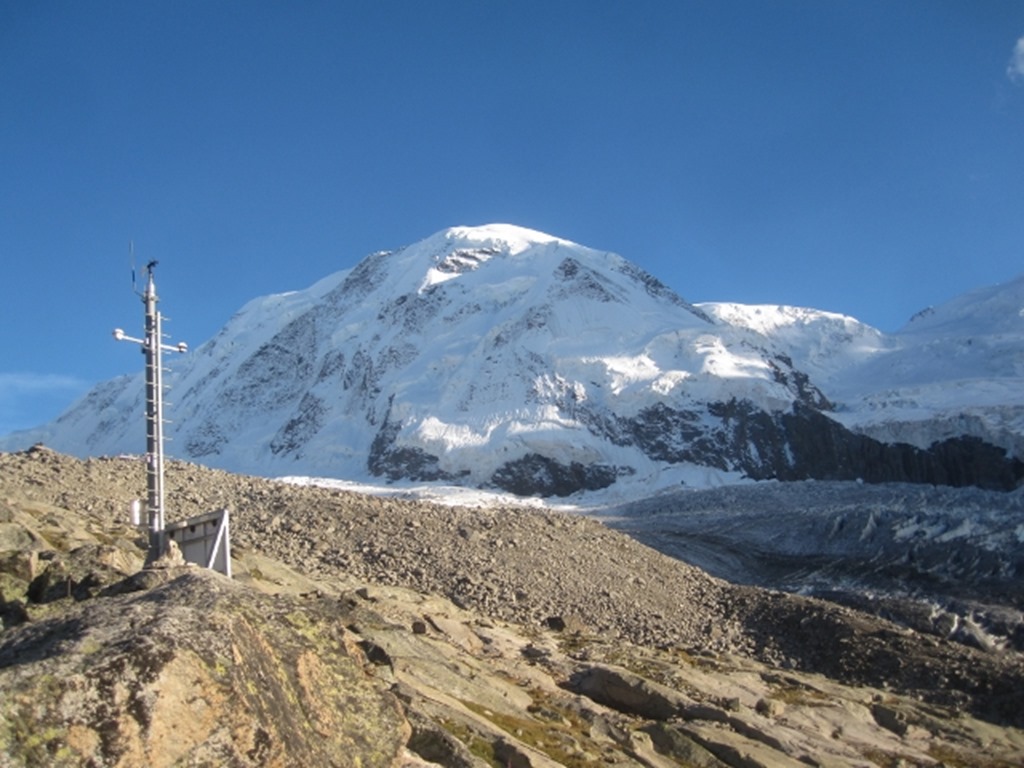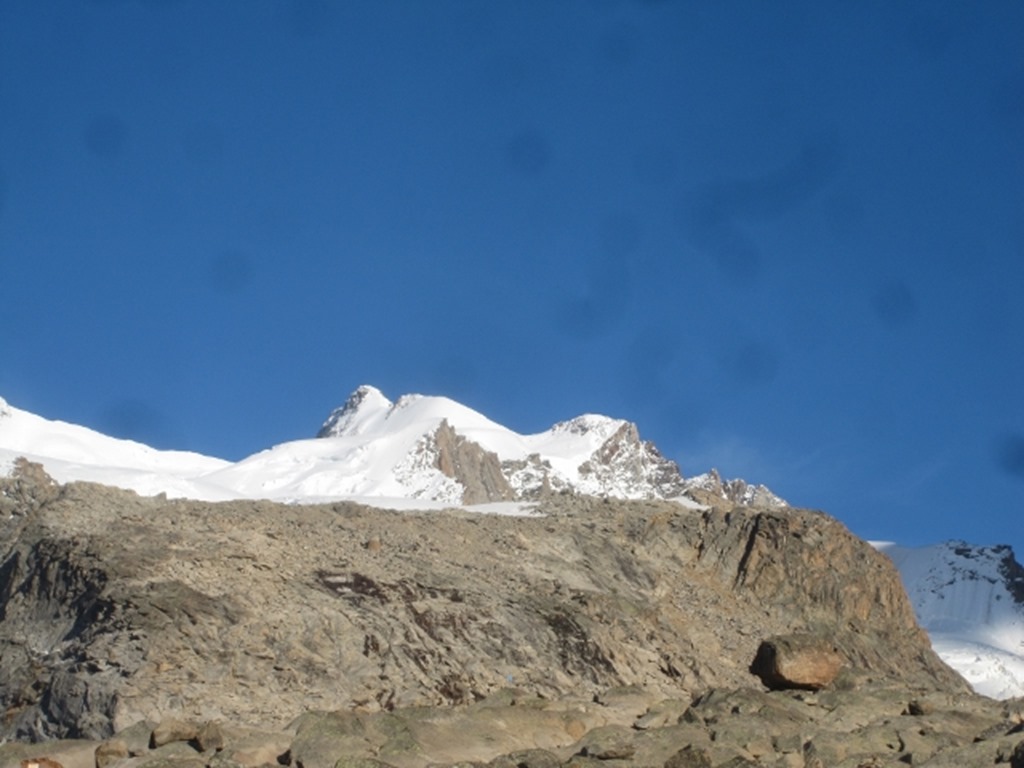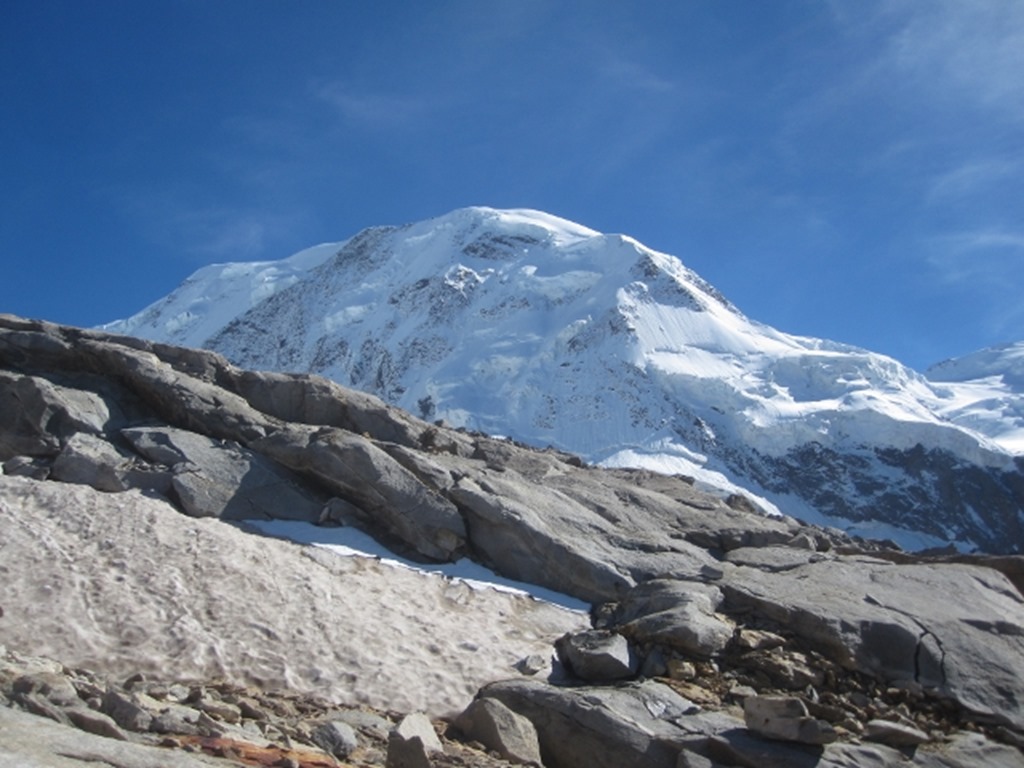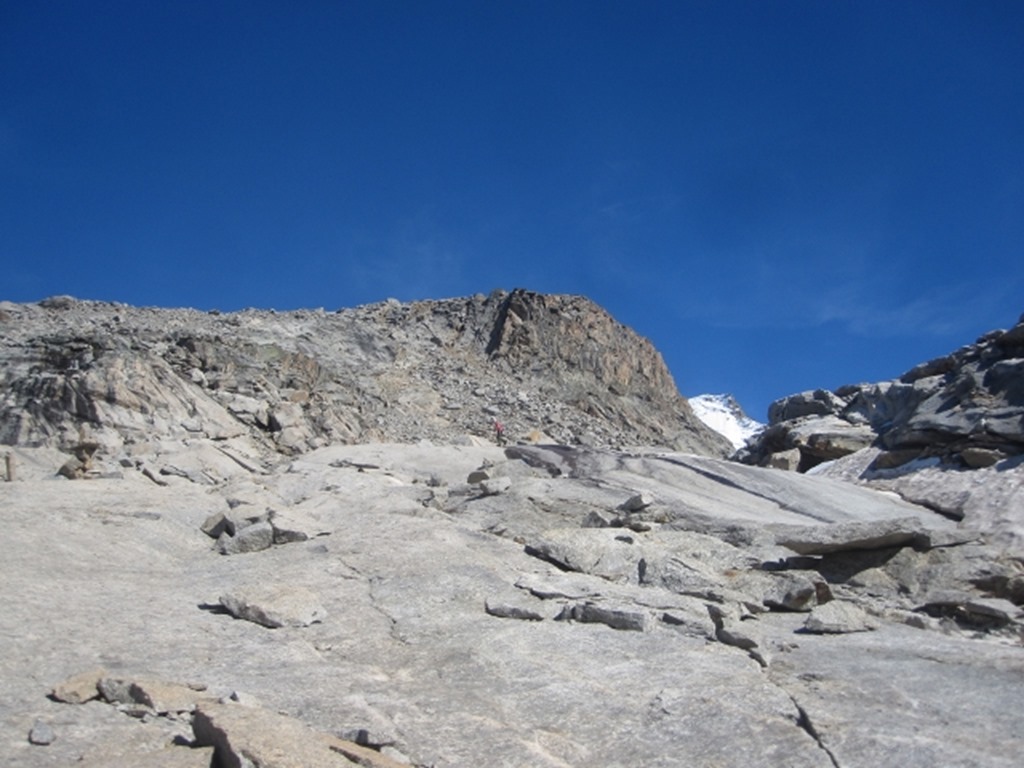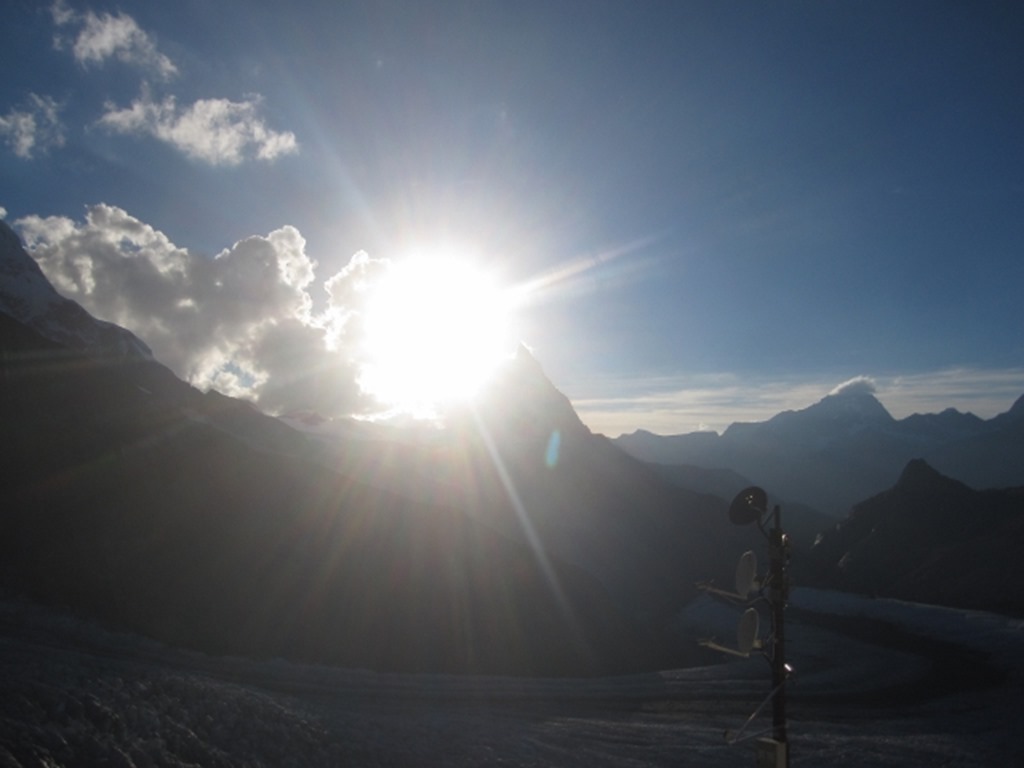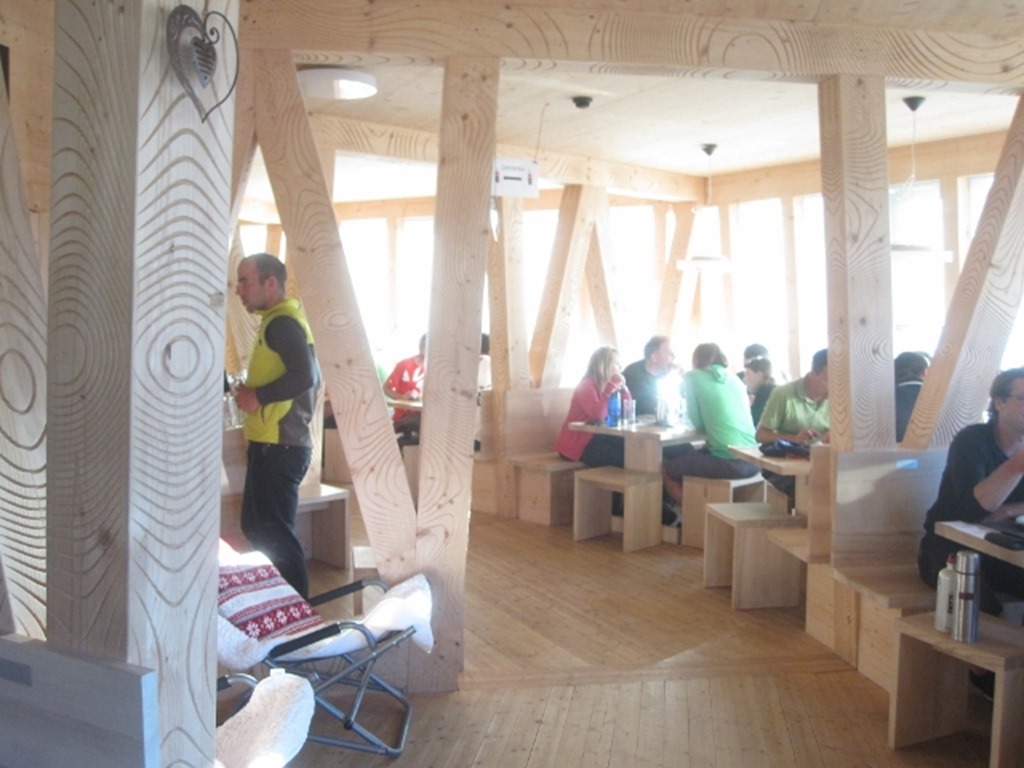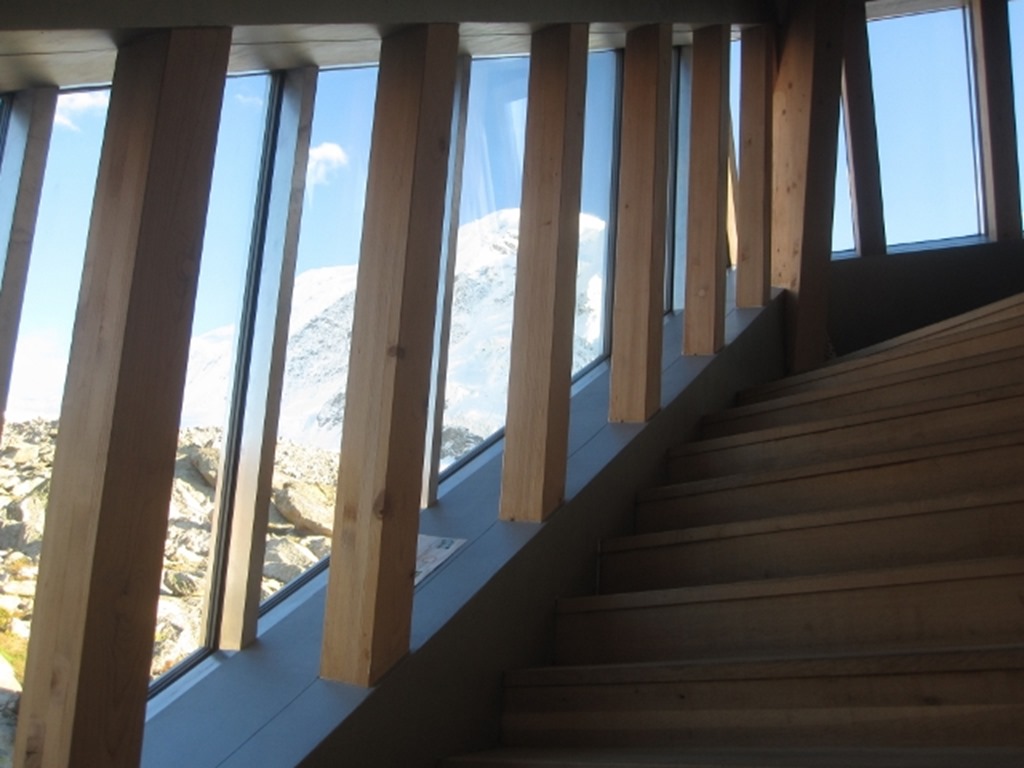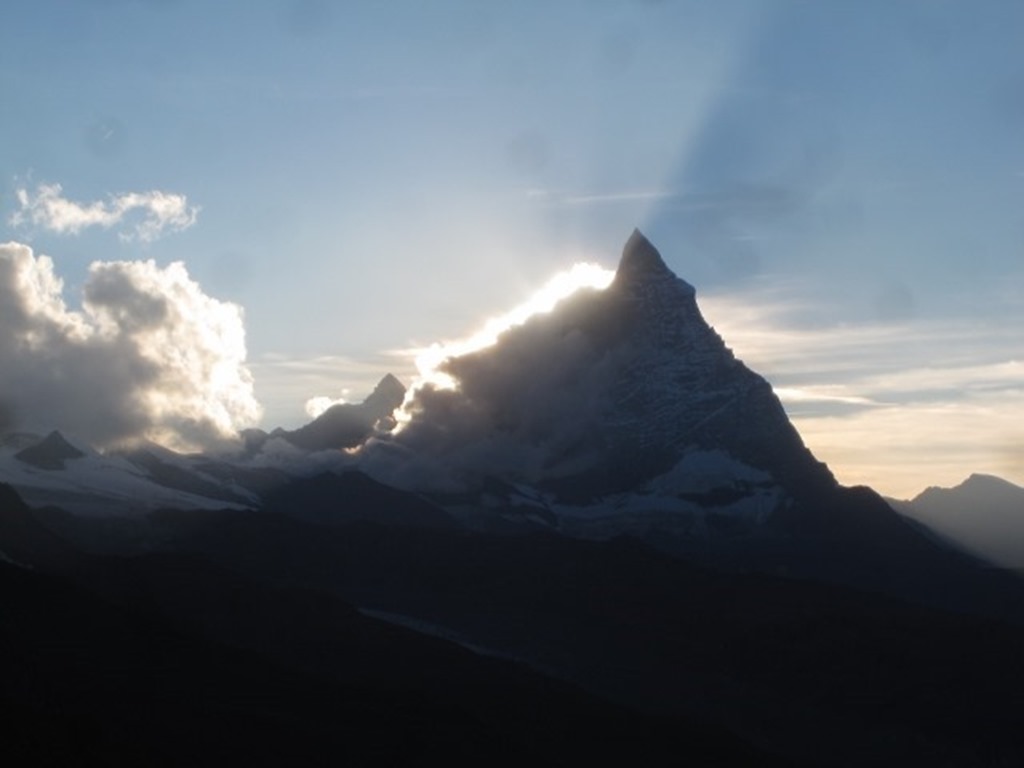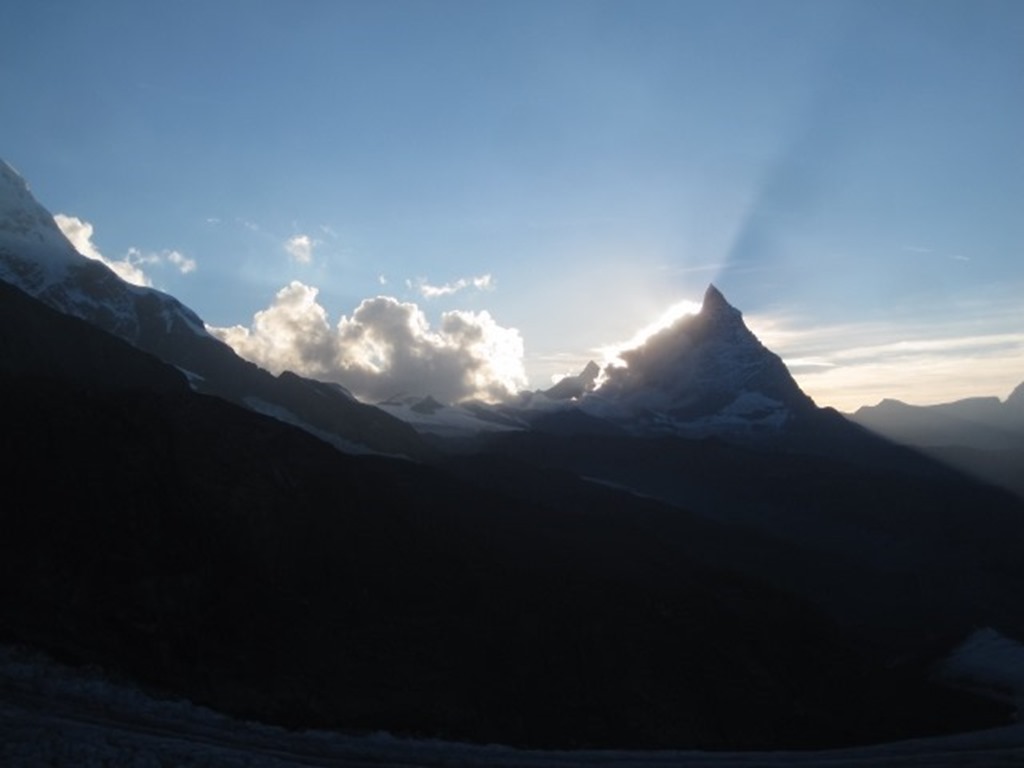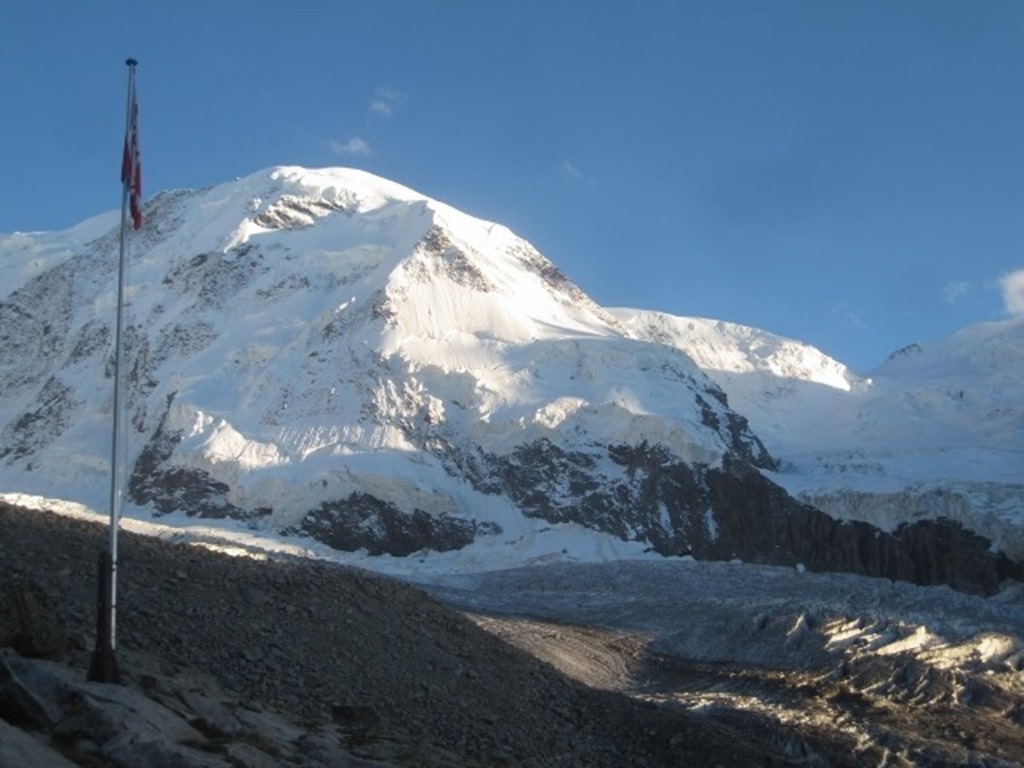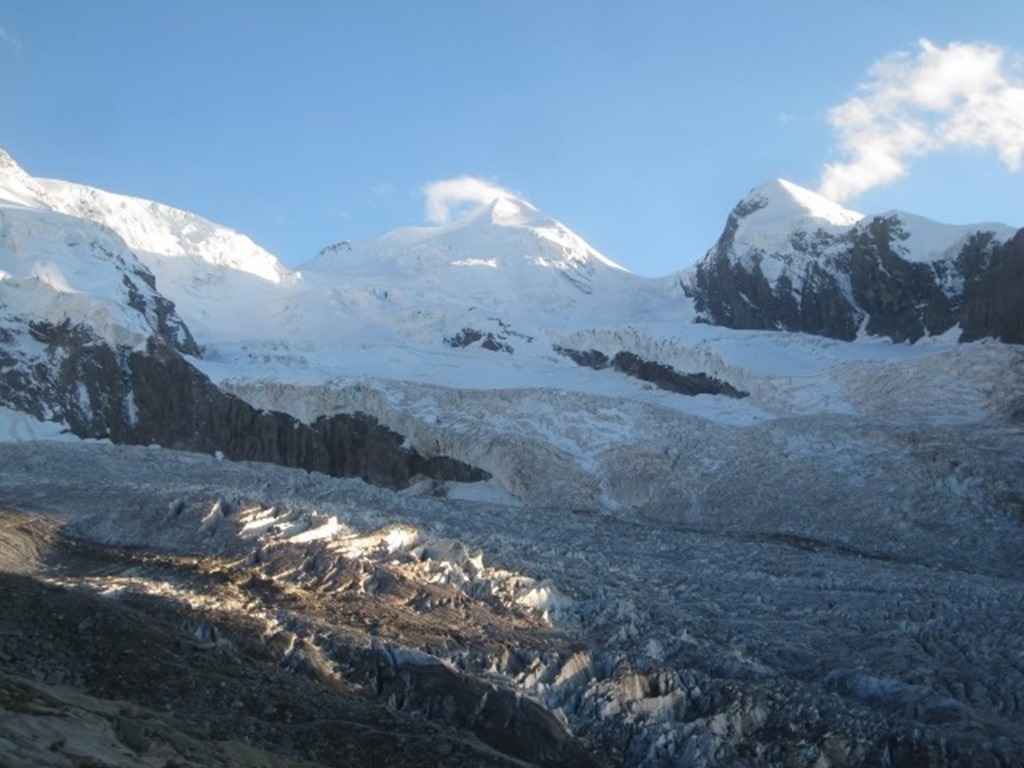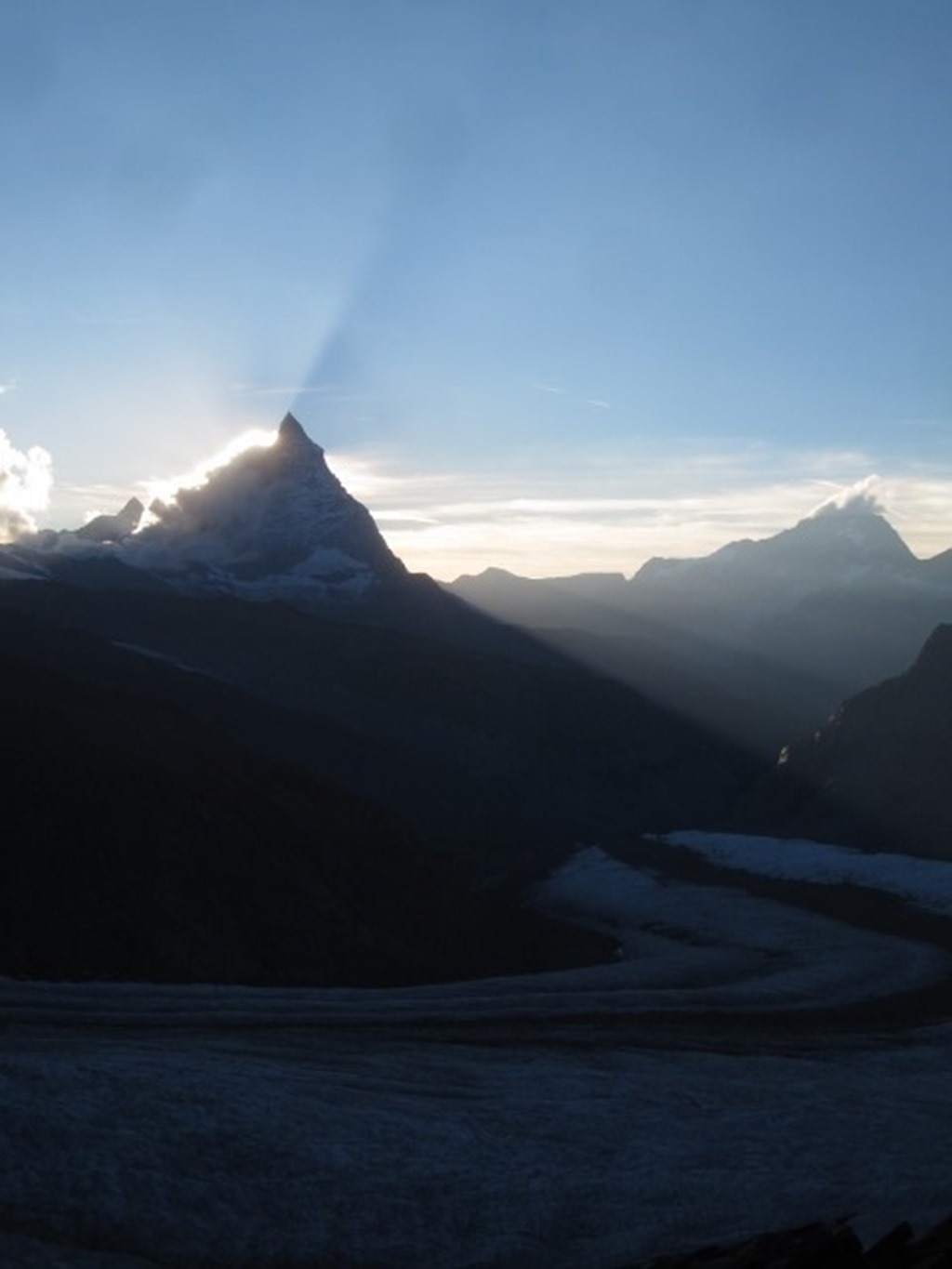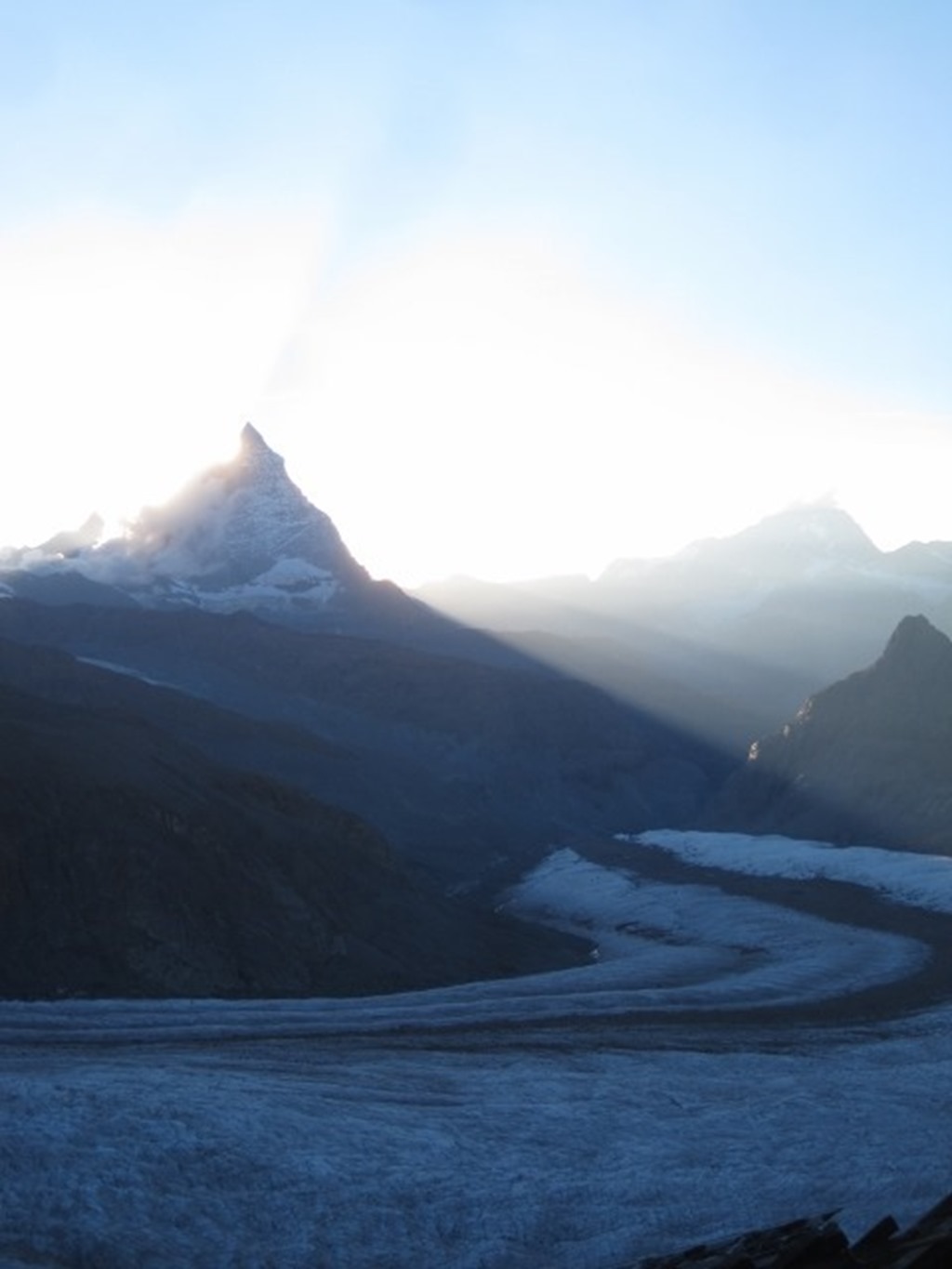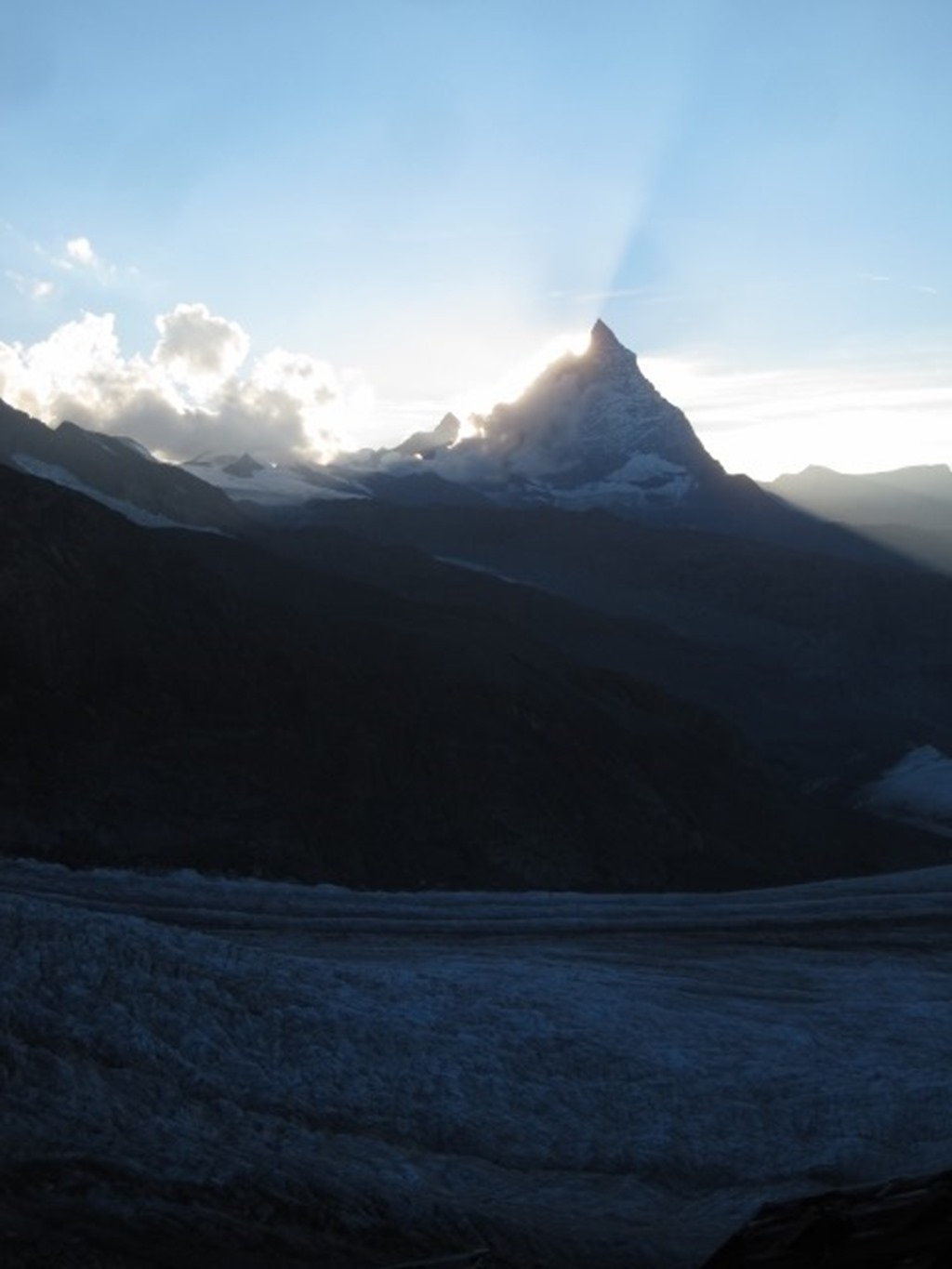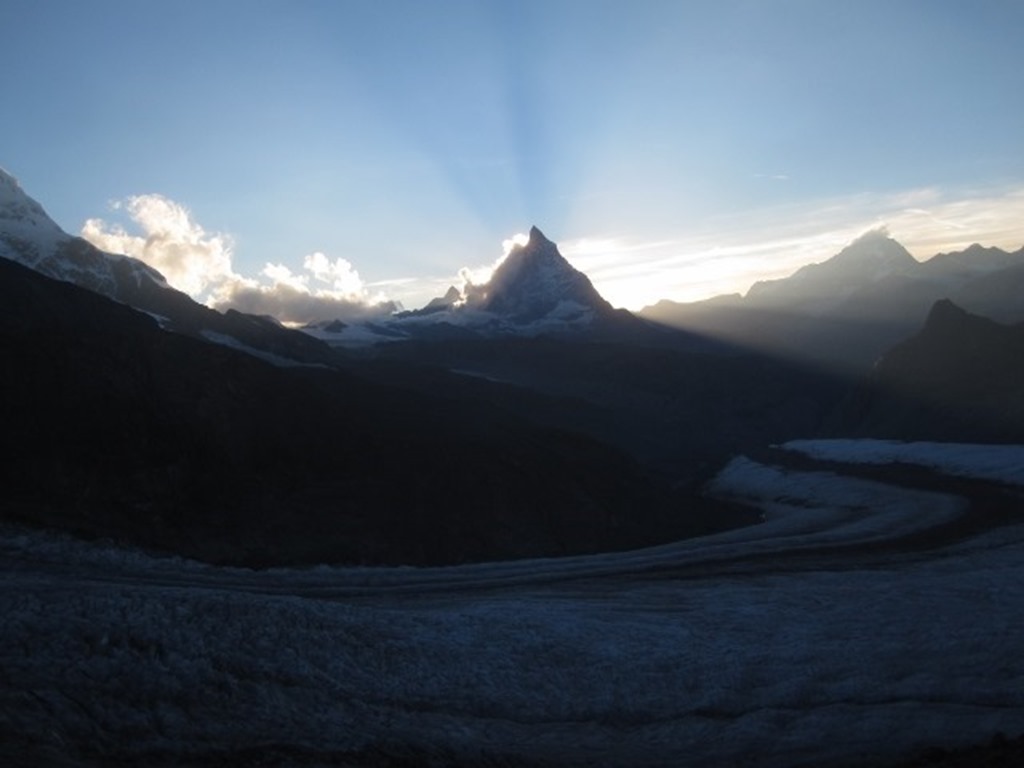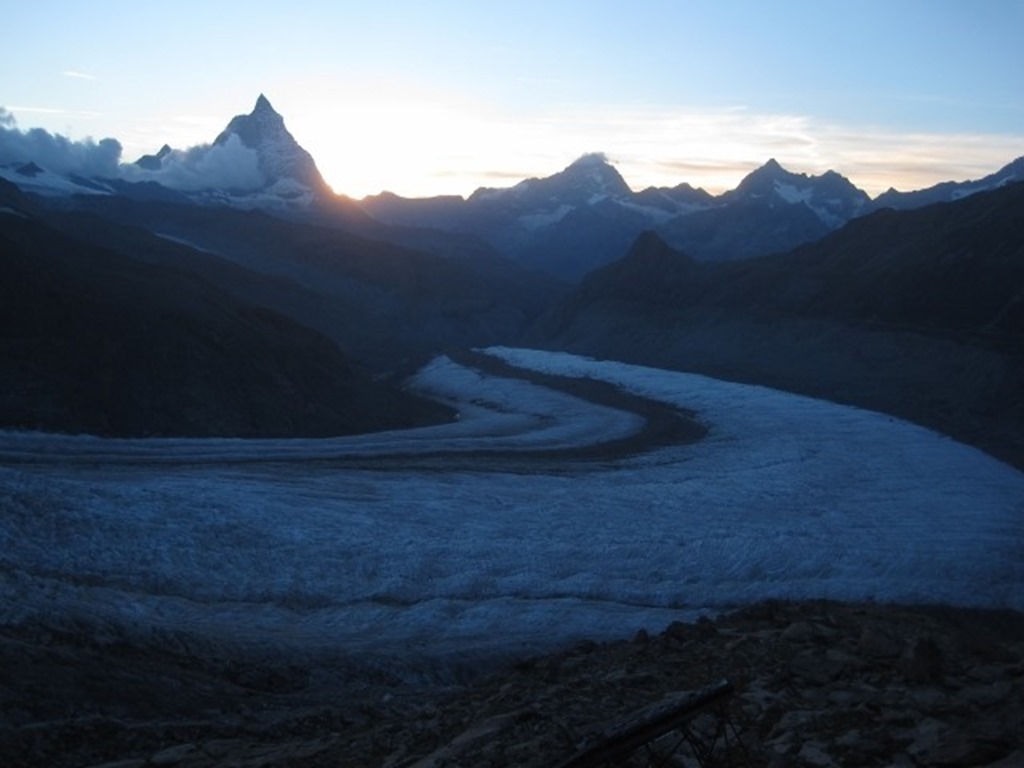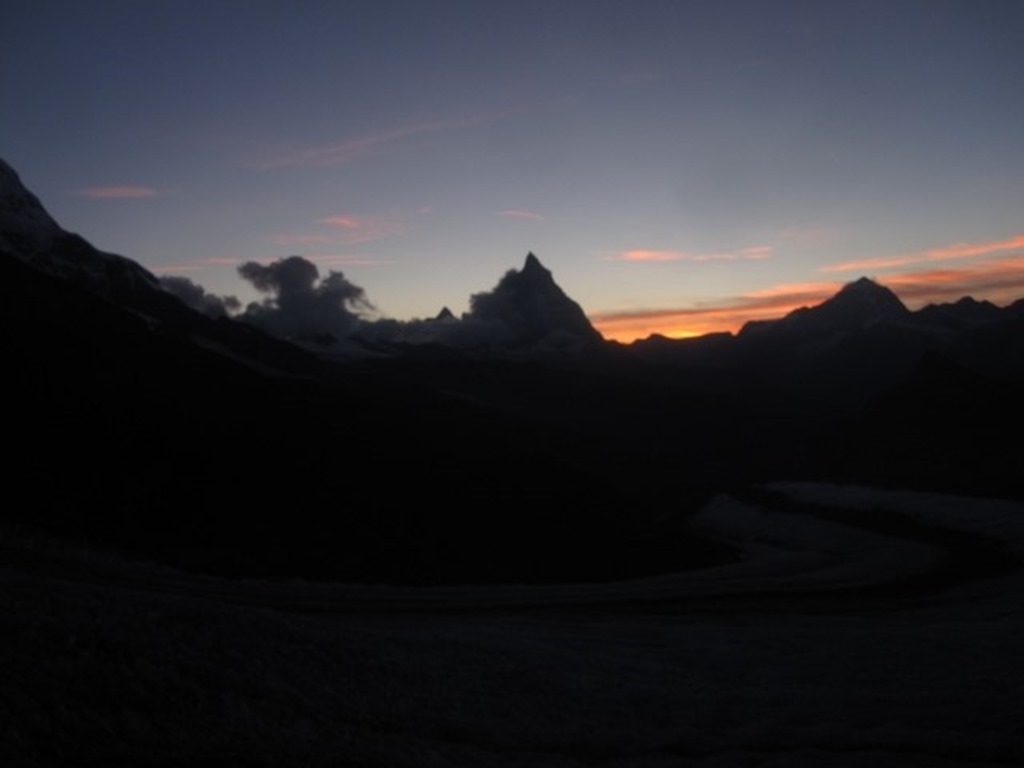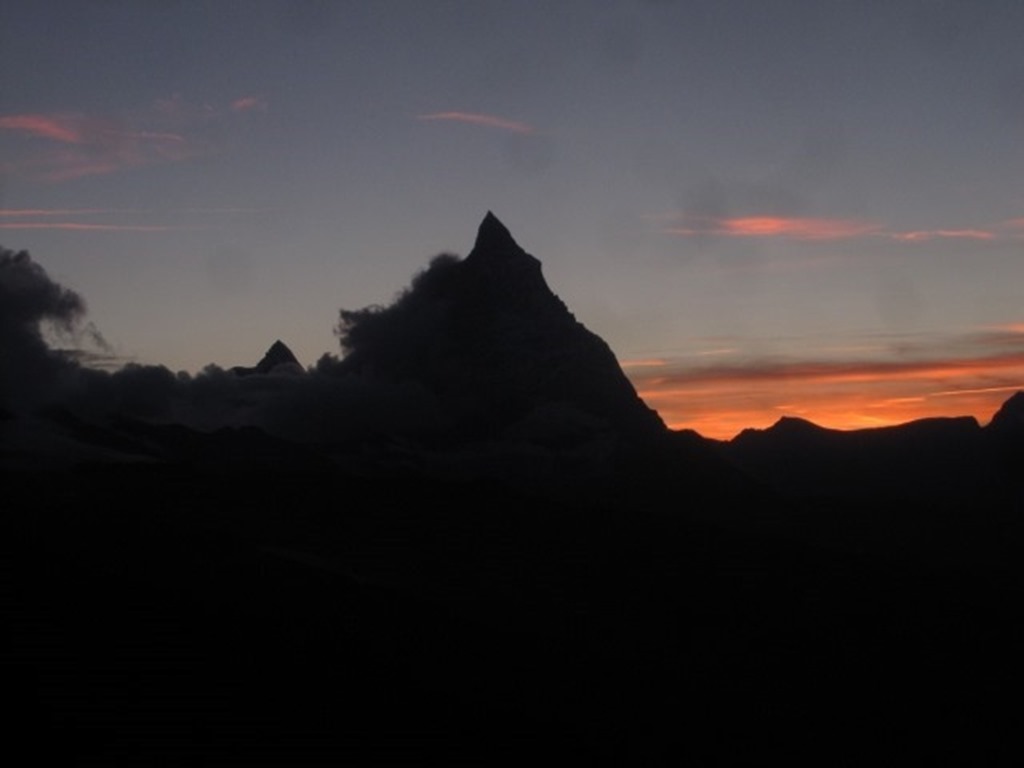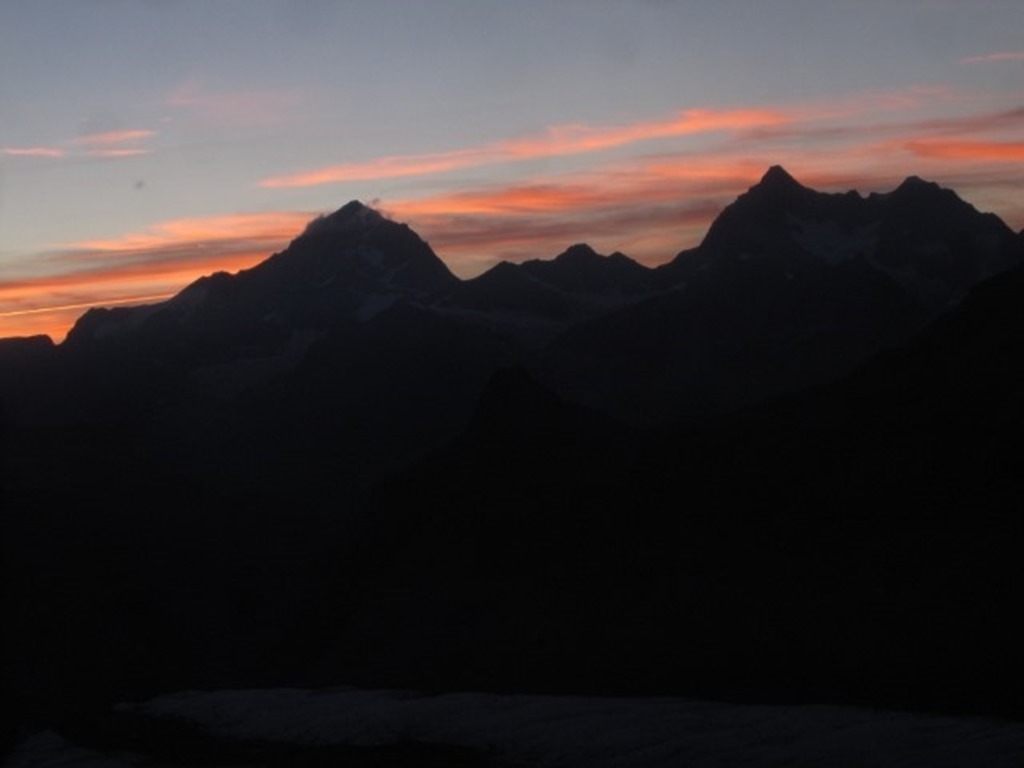This is probably the start of our biggest adventure to date. And if you are visiting Switzerland this post could save you serious money!
| Come late September, Dora is up for sale.
If you or anyone you know is looking for a reasonably priced motorhome then please check out the following link; https://www.2wanderers.com/dora-for-sale/ or if you have any questions email us at; Thanks |
 For the day after tomorrow we are attempting to climb a mountain. In fact we are attempting the second highest peak in the Alps, Dufourspitze, part of the Monte Rosa massif.
For the day after tomorrow we are attempting to climb a mountain. In fact we are attempting the second highest peak in the Alps, Dufourspitze, part of the Monte Rosa massif.
But first we have to get there, or somewhere close to there, and that is a costly and logistical nightmare in itself, so we have left ourselves a bit of time to organise everything, and most importantly relax before the big push.
From our less than quite night, we drive down the short distance to Tasch. This is the last town before Zermatt. Zermatt is car free, not exactly true, it is tourist car free, the locals have cars. But it is all part of the environmental pretence they have built up. But maybe that should be for late in the post. We are using Swiss francs SFR which are approximately 1 SFR to €1.03 so pretty much the same!
We pop into the tourist information, mainly to check the weather. It looks absolutely perfect. This had been a bit of a worry. One of the online mountain weather sites had predicted 6cm of snow. Not what you want!
Tasch is really an oversized car park. Another means for the Swiss to extort money from the tourist. A car in the official station car park costs typically 12SFR per day for the privilege of visiting Zermatt. Luckily there are private ones. Because of her size Dora costs €18, so for two days that will be €36, but we have done a deal so we can sleep in her the first night. This is the start of us haemorrhaging cash for the next couple of days!
The next thing to organise the train tickets; Tasch to Zermatt 8.2 SFR single each, so a total of 32.8 SFR.
However a quick look on the Swiss Rail (SBB) website and a supersaver ticket costs 5 SFR, so we just saved 12.8 SFR. It is still appallingly expensive, but you keep telling yourself you have saved a third!
Now for the milk curdling, gut wrenching, tear producing cost, we also need to get the Matterhorn Gornegrat toy train; 38 SFR each one way, so that would be a grand total of 152 SFR for both of us return.
We spent a good hour both looking to see if there were any deals online, anyway we could reduce this ridiculous cost, nothing. And then we remembered our bus experience, where we were able to buy a train ticket on the bus, just suppose SBB sold these tourist train tickets as well……They did and we could get the same supersaver ticket, this brought it down to 22.50 SFR, we just saved another 60 SFR.
We have already booked our accommodation at the new Monte Rosa Hutte, that cost 45 SFR per person per night, so we will hopefully walk straight off the summit, so we will only have to stay a night. We have also decided not to have food this time, we will take our own, this has saved us another 80 SFR
So by early afternoon we are pretty much ready, so we can relax, take a stroll around Tasch, which is surprisingly quaint for a car park, watch the world go by and think about the adventure and effort ahead.
We are up fairly early. We both slept well, everything was packed last night and we are raring to go. Our train leaves at nine o-clock, so just time to show the ticket seller the email so that she can exchange it for a ticket and hop on the train for the twelve minute journey down to Zermatt.
But no sign of the nine o-clock, mainly because most people get a shuttle that just goes back and forth between Tasch and Zermatt. We have to be different getting on the Glacial Express instead.
Surprisingly it is two minutes late, who do we complain to!
Those large gleaming spotless windows, and the floor has been freshly mopped.
Not so busy this early in the morning, tour groups tend to have a lay-in.
The taxis here are all electric, another wheeze so that they can overcharge you. For all the environmental conscious attitude it is amazing how many helicopters are needed to ferry bottles of spring water up mountain valleys. Surely a little hypercritical!
We have no need of the taxi, we use our environmentally friendly attachments to our torso. Yes you’ve got it, our legs. It is only 50 metres to the Gornegrat station.
And our first glimpse of the Matterhorn. Warning, there are a lot of photos of this crumbling bit of rock in this and the next post.
Next train, the expensive one, for the half hour trip, which is painfully slow up this steep incline, using its cogs all the way.
Gawping tourists, taking selfies through windows with the flash on all the way up.
Quite a nice outlook.
Should this one be next on the itinerary?
We get off a stop before Gornegrat. Only a couple of others follow. Quite a nice panorama. Dufourspitze is over to the left and looks smaller from here. It is not.
There are pretty impressive glaciers around here
There she is in all her glory. She may be 200m lower than Mont Blanc, but this is a more serious undertaking due to the rocky ridge near the summit, which you can just pick up. This is a proper climbers mountain.
We can also start to pick out the route, which is always good to know. It appears as a thin track pretty much all the way to the top. This is good news, it shows there hasn’t been recent snow and probably people are ascending daily.
Today we are just walking to the hut. The woman at the tourist information office suggested it would be four and a half hours. Our guide suggests three and a half. So we can relax and enjoy the short journey. The first part is mainly down hill. A really gentle slope down an excellent path, with view back to the Matterhorn all the time.
And views down to the glacier below. We are getting used to such views, although not as vast and impressive as the Grosser Aletschletscher the other side of the valley. This glacier, however we have to cross.
There are many different types of glaciers; hanging ones dropping steeply off the sides of mountains, dirty ones covered with small gravel and stones picked up from the sides or having fallen from the rocky hillsides above, wet ones covered in a layer of snow and dry ones a vast sheet of ice that you can partly see through. Today we will be crossing a dry, dirty glacier.
But first we have to get down there, down onto the glacier. The path continues beyond the turning point of the main glacier, where the Grenzgletscher meets the Gornergletscher, and then starts to drop.
Ladders help us navigate down the steep cliffs. There is no safety cable here, no via ferrata lanyard, but the ladders are stable and easy to negotiate.
Then we cross a raging stream of glacial melt water.
Water is cascading down from every direction, the only noise in the valley except for the occasional helicopter.
Stream crossed. Now we are close to the glacier. A group of six sit preparing to traverse the ice. We strap on our crampons and gingerly step over the gap between the rocky walls of the hillside and the melted side of the glacier.
The ice is steep, but with the crampons, quite safe to walk down. The path is the only clean part of the glacier, worn away with the repeated action of the crampon spikes. The ice below is exposed letting you see deep inside.
The path wends its way between the maze of crevasses. Here they mainly run down the glacier, rather than across.
Being a dry glacier, the crevasses are incredibly obvious. There is little fear of stepping on an insubstantial snow bridge here and plunging into the depths of the crevasse. They are beautiful sinuous forms, stretching deep down, often filled with ice cold water and reflecting deep blue colours.
The Matterhorn is ever present on the horizon, looking over us.
The glacier gets dirtier, it is easier to walk up now, with a layer of grit and gravel.
The grit turns to stones as we start to cross a patch of moraine, it is time to remove the crampons.
But now we can clearly see our destination, high up on the rocky ridge above us. A gleaming silver intrusion into the landscape.
But the glacial travel continues, but we are making good progress and our path can be clearly seen.
A stunning journey, made all the better by the crystal clear weather, although maybe some clouds will start to form in the afternoon.
We are cross in between where the two glaciers join, and a deep turquois lake has formed in the middle of the moraine.
Finally we leave the glacier behind us, and start the short climb up to the Monte Rosa Hutte. There is only about 300m height difference, so it should not take too long.
The climb gives us every more impressive views back towards the Matterhorn.
Clouds are now beginning to form around its edges.
Eventually, after three hours and fifteen minutes, we reach the small plateau where the new Monte Rosa Hutte sits at about 2840m. We have made good time. It has been a relaxed unrushed walk. Not too exhausting, we will need all of our energy for tomorrow.
We take in the panoramic views and then explore the new hut.
This hut was built about ten years ago and dramatically increased the amount of people it could handle. An ultra modern aluminium clad, eco friendly buildings.
The building produces 80% of its energy from photovoltaic panels, all its hot water from solar thermal panels and recycles its waste water for flushing the toilets. The rest of its energy comes from a generator apparently run on rape seed oil, however it appears that all of its supplies are delivered by helicopter, slightly undoing all that hard work as the helicopter is pretty much the least energy efficient form of transportation!
The inside is equally sustainably conscious, with a laminated timber frame, which gives a light and open feel, but the frames also create little compartments and a sense of privacy.
But this building is really all about the view.
Now I have been here before, and I will talk about that in another post. That time we camped higher up, but we visited the old hut. The old hut was what you might imagine a traditional climbers hut to be like. This has subsequently be blown up by the army.
This building is pretty amazing, but in the process I might suggest it is no longer a climbers hut. I think this is now a tour group hut. While here we experienced vast lines of people hauling themselves up here, bought by guides. It was obvious that they had no experience. How they navigated the ladders, glacier and crevasses, it must have taken them hours.
The cost of staying here is not that exorbitant, but the add on are. The food; a plate of cheese- 20 SFR, a plate of pasta- 20 SFR, a fondue- 30 SFR a beer- 7 SFR. This is where they make their money. And lets face it, and tour group, spending €200 per night is far more lucrative than a bunch of penny pinching climbers. This is the equivalent of the yuppie-fication of the city centre.
One thing really shocked us, all that technology and there is no drinking water. Yes you got that correct, they want you to spend 10 SFR for 1.5l of mineral water. To put that in perspective, tomorrow Susana and I will take 3l each up the mountain, 1.5l on the return to the train and 1.5l for tonight with dinner, a total of 12l for the two of us for the two days. Cost 80 SFR just on water. I object to this not only on cost, but also on health and safety. How many climbers might risk dehydration! They could easily have put it an efficient filtration system using the glacial melt water reducing many of those helicopter flights, reducing the risk to climbers, but I suspect that might have reduced the bottom line, the profit margin.
We used some of the so called non-potable water from the bathroom and boiled it. We used up a canister of gas, just leaving enough for dinner, but 9l cost just €6 to boil. No we are not going to pay 10 SFR for 1.5l.
We sit on the terrace where we can find a place for our stove. Another fault in this building, no place for people to cook their own food, this is really not for climbers and walkers, not for travellers , this is for tourists. While we boil the water we also grab some lunch, a pasta salad. We have bought 4 of these up with us, a small stove, our titanium pots and pans and food for dinner. It is on the walk in when you really appreciate all that weight saving effort.
Check out our camping post
Afterwards we want to check out the route. The first part of which is up a rocky plateau, which might be difficult to navigate at night as we will be leaving at 2.30am.
It doesn’t look so difficult, although things are very different by torchlight. It is however surprising when you are on an open mountainside and the skies are clear how much light is available. Tonight will also be pretty much full moon, it really couldn’t have worked out better.
Things should get easier beyond the rocky bit, from then until the final ridge we will be on the Monte Rosa glacier, a long, steep, slow, snow plod. Easy to follow though.
It looks like we will be going up there, on top of that rocky bluff. That is where the glacier should start.
We head back towards the hut as the sun starts to drop and lights up the Matterhorn.
Back inside, everyone else is scoffing down pasta and beer.
We collect our food and head outside to cook it. We want to be chilling out in bed as early as possible. We know we won’t sleep much, but just the not doing much will be resting.
The low sun angle makes for some beautiful images.
There is a small window close to our beds. For the time being we are on our own, but soon four others join us. All of us will be heading up the mountain tomorrow.
What better way to relax. The view just gets better and better.
We certainly won’t get our eight hours tonight. I always find it difficult to sleep in a mountain hut, what with the altitude, snoring people, and the anticipated excitement and apprehension about the next day.
So I drift in and out of dozing, watching an incredible skyline, sometimes vaguely awake, sometimes not.
Occasionally I think I see lights up the ridge of the Matterhorn.
Is this some ghastly touristic attraction akin to lighting up the Eiffel tower
It can’t be climbers at this time of night, and so extensive.
Or perhaps it is just a dream…
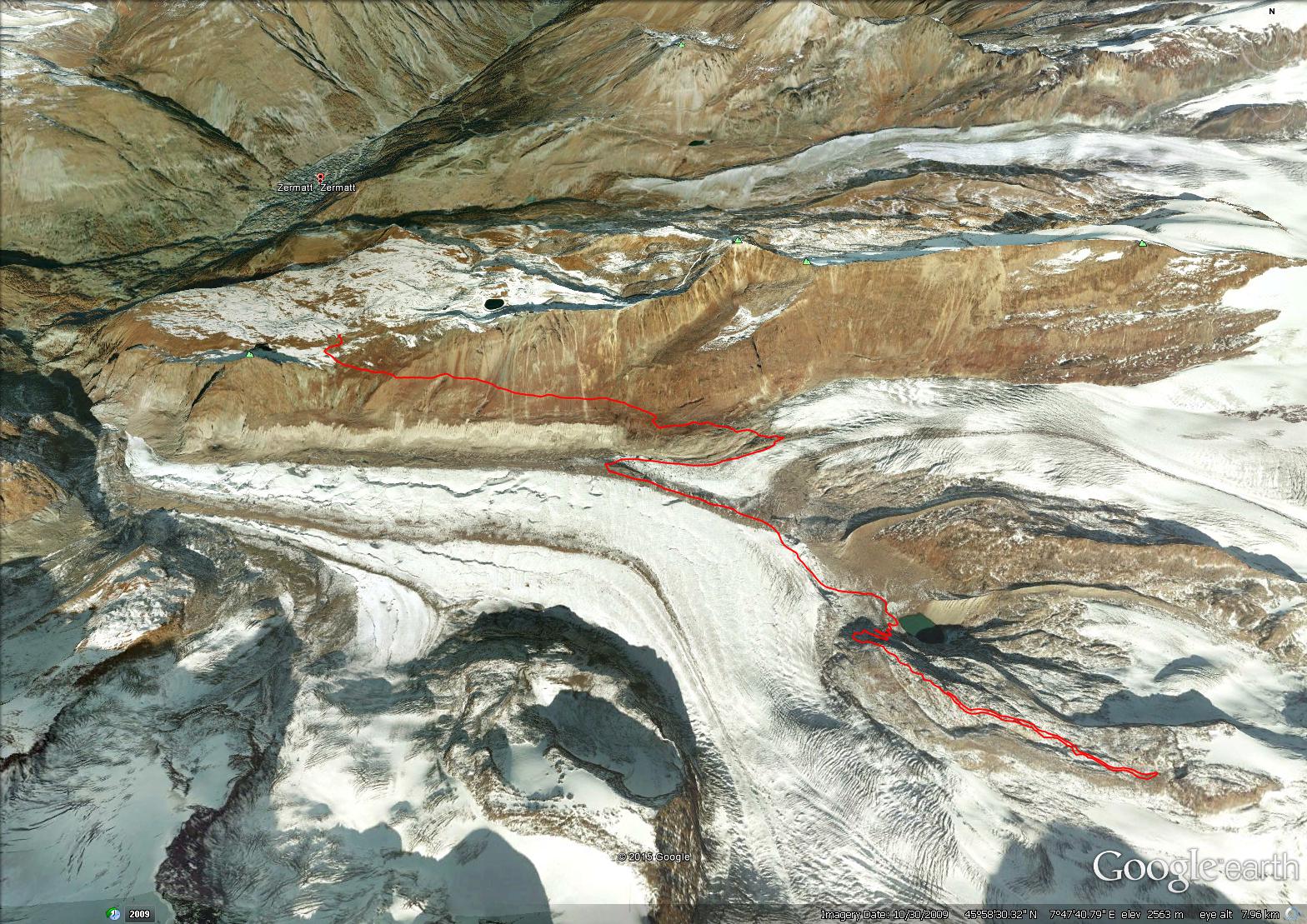
11.2 kms
3.15 hrs
GDR

